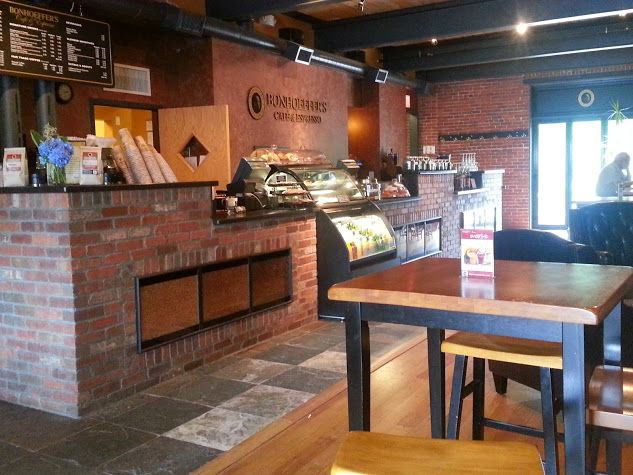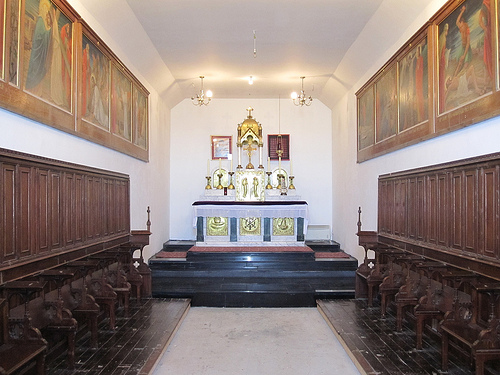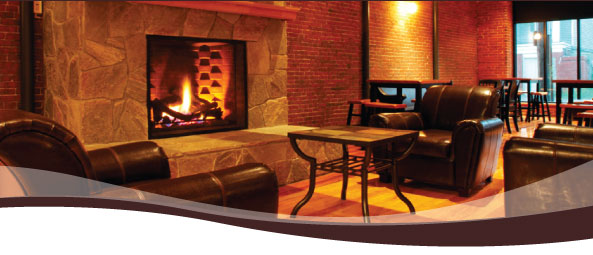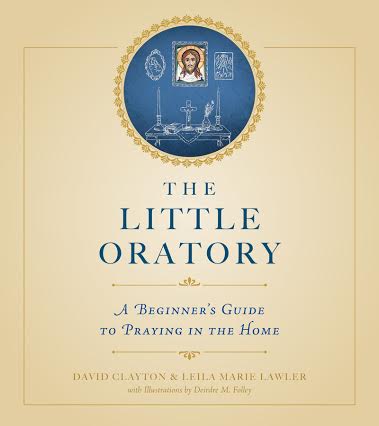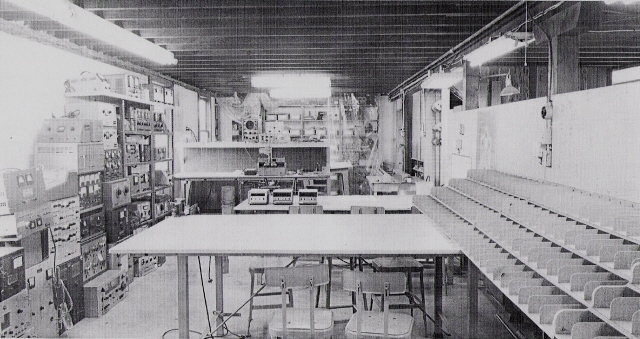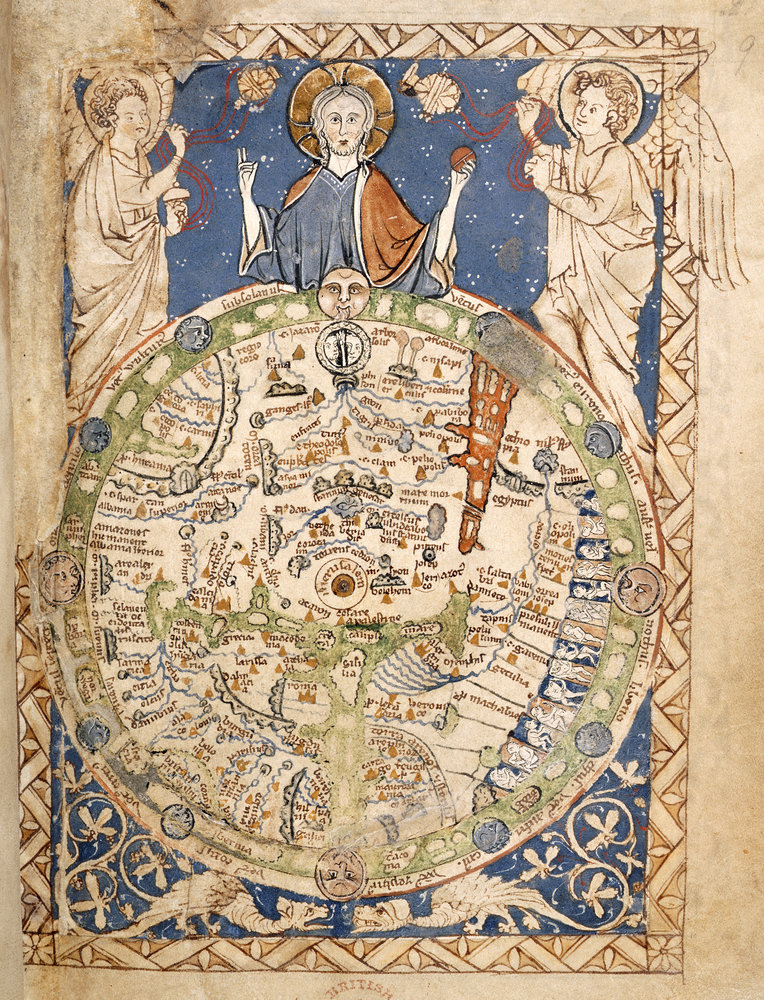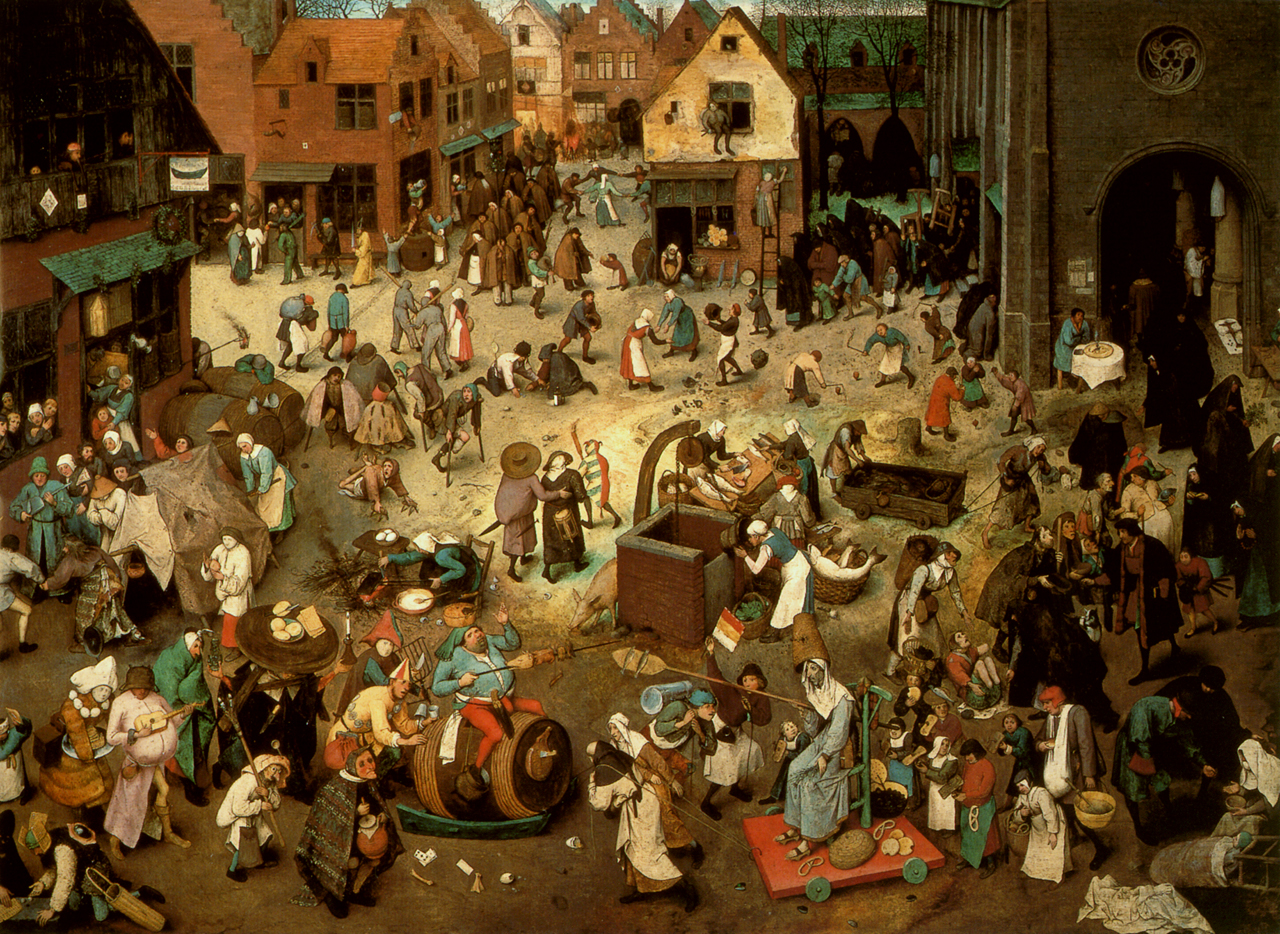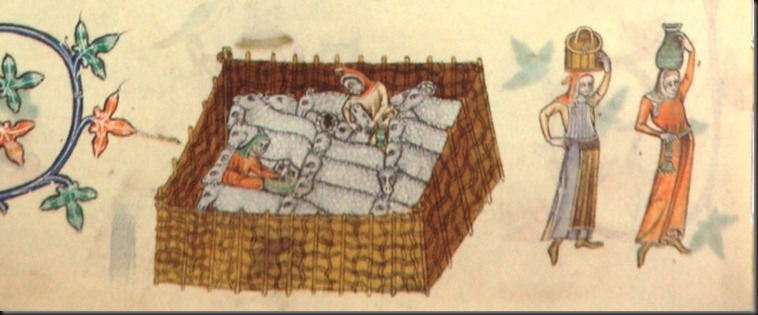Why we need the Christian anthropology: Body, Soul, and Spirit to replace the New-Age Anthropology: Body Mind Spirit. A call for help from Thomists.
Churches Should Look Like Airports, But Not Like This
Book Review: Reason, Faith and the Struggle for Western Civilization, by Samuel Gregg
The Theology of Legoland - Why Is It So Popular?
Christians take note. Legoland have worked something out here. These children are transported in their imaginations and they love it. The fact that the images are made out of plastic bricks, does not put them off, rather it seems to attract them even more. We may hold our noses at the McDisney aesthetic, but we should look and learn. and consider why, despite that, it is so popular.
A Fire in a Cathedral? Why So Sad?
Devotion, Design and Decoration - How Liturgical Art Influences the Wider Culture
We need art that is clearly derived from the liturgical forms but is distinct from it and directs us to purest form, so to speak, by being part of the wider culture of faith. This is the beginning of the process by which the liturgy, which is a source of its own culture, begins to push out into the wider culture and transform it into a Christian culture.
A Catechesis by Which Christ Himself Becomes the Continual Mystagogical Catechist through the Mass
A book review of A Devotional Journey into the Mass: How Mass Can Become A Time of Grace, Nourishment, and Devotion, by Christopher Carstens (pub Sophia Institute Press).
In this book, author Christopher Carstens takes us through each key element of the Mass—from how to enter the church through to how to respond to the dismissal. Grounding his discussion on the sacramental thought of Romano Guardini, he takes us on a journey into the heart of the liturgy.
Why the Benedictine Rule is Psychological Training for a Joyful Old Age
I once heard a discussion on the radio about preparation for old age. The focus was on making sure that you had sufficient financial resources and so there was talk of the need for people to start making contributions to pension plans early. One person offered a slightly different approach. While putting money away for the future was not a bad idea, he said, people should think about what they are actually going to do when they retire, furthermore they should avoid getting into the trap of living the whole of their working lives as though its only purpose is to provide for retirement. Why not try to find a way of earning money that you enjoy, he said? Then you will want to work after the age of 65 because you enjoy it and so reduces the amount of money that one needs to save; and makes the time both before and after retirement more enjoyable. As he pointed out, there is danger of being so fearful of being able to support yourself after 65 that the whole of you life prior to it becomes a waiting game in which retirement is a sort of 'secular afterlife', a reward for the drudgery of work. He had a point, I think. Firstly, pension schemes are not guaranteed however prudently one saves. Also, it is good to think about what we can do to enjoy life, before and during retirement, as well as having the money to do it.
Given that my physical capabilities are going to decline with time, shouldn't I be ready to change what do as I get older so that life is always interesting. I am 52 and so am aware of this happening already. I am reminded of my grandpa here. While he did the same job all of his working life which he enjoyed until he was 65, he always had strong recreational interests as well. He was an nationally known rugby player until he was thirty, when I he gave up rugby and took up tennis and golf. For the next 20 years he played for the local tennis club and got a golf handicap of five. Then at the age of 50 he gave up tennis and golf and took up the even more sedate activity of bee-keeping, which he did until he died at the age of 83 (at the end he was recruiting neighbours and family members to help him move the hives onto the moors for the heather-honey season). Bee-keeping was the hobby that he followed for the longest time and which occupied him during all of his retirement.
Ultimately, our happiness in life rests on more than having hobbies, of course.; but the principle of anticipating how we change as we get older applies as much to consideration of doing what is right and good, I suggest. This is where, for the Christian, consideration of one's personal vocation comes in. If we find out what God wishes for us to do then we will be fulfilled and He will give us the means by which we can do it. I have written a number of articles on guidance that I was given and will repost one of these in the next couple of days.
In recent years I have seen a number of people approaching their last days and suffering from debilitating illnesses. This has made me think about the lives of those who cannot do anything without great help, cannot concentrate long enough on anything they observe to derive mental stimulation from it and cannot communicate with others easily. Is Christian joy on offer to them too? One has to believe so...but how?
It is distressing to see someone dying of cancer unable to do much more than watch television and eat when fed. I saw someone whom I loved slowly decline so that she was not able to concentrate or draw on her memory sufficiently well to engage in conversation. What made it worse was that she was aware of the decline in her mental abilities and was getting frustrated at not being able to respond and say what she wanted to. Unable to move without help, she was chair bound most of the day and would fall asleep periodically (perhaps under the effect of the pain controlling medication) and so could not even watch a television program long enough to follow what was going on and enjoy it.
I could not help trying to put myself in her place and imagine how life must be for her. How does one cope when there is little pleasure and continuous discomfort? It was a difficult question for me to answer, so I prayed that she could know that her family loved her. I prayed also that her capacity to respond to God's grace was always present, even as all other faculties decline in power. Then, I hoped, even in this last stage of life Christian joy can be hers too. Like the joy of the Christian martyrs who can inspire us, that there is a joy for her too that transcends the physical suffering and increasing isolation.
I have reflected also on what may be the future for me. Like any of us, it is quite possible that I will have to face such a situation myself. How would I fare? Is there any preparation anyone can make?
The only answer I could think of was a life of prayer, meditation ordered to participation in the liturgy. The Rule of St Benedict sets out one approach to such a life. As a Benedictine Oblate (of Pluscarden Monastery in Scotland) I have studied the Rule a little and have tried to adapt it a lay life.
A spiritual life should be focussed on the worship of God in the sacred liturgy and be a balance of participation in the liturgy itself, (the Mass and the Liturgy of the Hours); quasi-liturgical prayer, which is structured prayer that echoes the patterns or content of the liturgy, such as praying the psalms, repetitions of the Jesus Prayer or the rosary; and personal prayer. The liturgy is the activity from which all other human activity is derived and to which it ought to lead us. When this is understood, it makes all our everyday, common-or-garden activities fulfilling, while at the same ensuring that they don't become our primary goals in life.
In this context we can see that as we get older and our physical capabilities decline we will be forced to do things that are less physically demanding. If at this point we have developed the habits, then we will reach naturally for things that are in harmony with the principle of ordering our lives to union with God; and the activity of worship and prayer itself will start to occupy a greater proportion of our time, through default as well as desire.
For those I saw who were in their last days, even prayer becomes more difficult, they could not read a psalter, for example and gain anything from the text. What then? I remember being told of a lady who silently prayed the rosary all day in her chair. She could do this because the memory of it was indelibly imprinted on her mind through years of habit, so that her prayer was second nature, almost unthinking. This highlights the value of memorizing some set prayers when you can so that they are there to draw on later. I would go for some short psalms and the gospel canticles and the Jesus Prayer.
What if even the ability to do this has gone? It seems to me that contemplative prayer is what remains. Contemplation is a passive state of mind by which one is receptive to God's grace. In his Rule, St Benedict insists on the regular practice of lectio divina (you can read about how to do it in my book, the Little Oratory or in more detail in a great book on the subject by Dr Tim Grey). St Benedict describes the fourfold process: three are active - reading, meditating (thinking) and praying and the fourth is contemplation a passive, receptive state of mind that we are lead to by the practice of the first three. We do not judge the success of this, incidentally by how feel during the process or even by the number of good ideas that might, occasionally, jump into our heads. Grace is not felt directly.
For Benedict, the 'work of God' in which we participate is the liturgy, and so I have always understood lectio divina as a discipline that is part of a training that deepens our participation in the liturgy and so allows for a fuller union with God. In praying the liturgy we move from moment to moment engaging in one or other of these four processes and these constitute the dynamic of the exchange of love that is our goal.
It may be that the people who I have described and in whom even the possibility of active prayer and worship is reduced, that contemplation is the natural activity that occupies most time. I would like to think so, at least. I do not know of any reason to believe that the power of the faculty of the passive reception of God's love in contemplatio is impaired by old age.
There is no accounting for who will respond to His grace but, to the degree that any of us can develop that faculty, the answer seems to be to include the regular practice contemplative prayer in your prayer life now, would be an important preparation for a joyful old age.
I have been doing lectio divina daily this since I pondered over these things. I also try to put aside time when I can be 'alone with none but thee my God' - these are periods when I just try to sit and be aware of and enjoy being alive, devoid as much as possible from stimulation. It occurs to me that it would a useful to develop such as skill when there is discomfort and lots of distraction going on around me so that I can learn to cut it out. I will not always be able to control my environment and I might have to try contemplatio in a nursing room lounge when the television if showing Wheel of Fortune at a loud volume.
Another point is that the limitations I describe are not the preserve of the elderly. Some are born with severe physical and mental handicaps and it seems to me that they too might be unsung, natural contemplatives among us whose presence brings untold graces into the world for the benefit of all. As I understand it, God is not constrained by the sacraments and neither is He bound to act in ways that require mediation of the senses for us to benefit from them.
When all is said and done, we may be surprised to discover who has contributed the most to the good of the world and who has lived a life of Christian joy.
A Model for A Cultural Center for the New Evangelization
 Going Local for Global Change.
How About a Chant Cafe with Real Coffee ..and Real Chant?
Going Local for Global Change.
How About a Chant Cafe with Real Coffee ..and Real Chant?
There is a British comedienne who in her routine adopted an onstage persona of a lady who couldn't get a boyfriend and was very bitter about it (although in fact as she became a TV personality beyond the comedy routines, she revealed herself as a naturally engaging and warm character who was in fact happily married with a child). Jo Brand is her name and she used to tell a joke in which she said: 'I'm told that a way to a man's heart is through his stomach. I know that's nonsense - guys will take all the food you give them but it doesn't make them love you. In fact I'll tell you the only certain way to man's heart...through the rib cage with a bread knife.' Well wry humour aside, I think that in fact there is more truth to the old adage than Jo Brand would have acknowledged (on stage at least). Perhaps we can touch people's hearts in the best way through food and drink, and in particular coffee.
There is a coffee shop in Nashua NH where I live called Bonhoeffer's. It is the perfect place for conversation. They have designed it so that people like to sit and hang out - pleasing decor, free wifi, and different sitting arrangements, from pairs of cozy arm chairs to highbacked chairs around tables. The staff are personable and it is roomy enough that they can place clusters of chairs and sofas that are far enough apart so that you don't feel that you are eavesdropping on your neighbors' conversation; and close enough together that you feel part of a general buzz of conversation around you. There is not an extensive food menu but what they have is good and goes nicely with the image it conveys of coffee and relaxed conversation - pastries, a slice of quiche or crepes for example. It has successfully made itself a meeting place in the town because of this.
This is all very well and good, if not particularly remarkable. But, you wouldn't know unless you recognized the face of the German protestant theologian Dietrich Bonhoeffer in the cafe logo and started to ask questions, or noticed and took the time to read the display close the door as you are on your way out, that it is run by the protestant church next door, Grace Fellowship Church. Furthermore a proportion of turnover goes towards supporting locally based charities around the world - they list as examples projects in the Ukraine, Myanmar, Ethiopia, Haiti and Jamaica on their website. Talks and events linked to their faith are organised and there are pleasant well equipped meeting rooms available for hire. I include the logo and website to illustrate my points, but also in the hope that if Bonhoeffer's see this they might push an occasional free coffee in my direction...come on guys!
Well, it was worth a try. Anyway, back to more serious things...the presentation of their mission does not even dominate the cafe website which talks more about things such as the beans they use in their coffee, prices and opening times and the food menu. The most eye-catching aspect when I was nosing around is the announcement of the new crepes menu! There is one tab that has the heading Hope and Life Kids and when you click it it takes you through to a dedicated website of that name, here , which talks about the charity work that is done.
I went into Bonhoeffer's recently with Dr William Fahey, the President of Thomas More College, just for cup of coffee and a chat, of course, and he remarked to me as we sat down that this is the sort of the thing that protestants seem to be able to organize; and how we wished he saw more Catholics doing the same thing.
 I agree. What the people behind this little cafe had done was to create a hub for the local community that has an international reach. It is at once global and personal. I would like to see exactly what they have done replicated by Catholics. But, crucially, good though it is I would add to it, and make it distinctly Catholic so that it attracts even more coffee drinkers and then can become a subtle interface with the Faith, a focus for the New Evangelization in the neighborhood.
I agree. What the people behind this little cafe had done was to create a hub for the local community that has an international reach. It is at once global and personal. I would like to see exactly what they have done replicated by Catholics. But, crucially, good though it is I would add to it, and make it distinctly Catholic so that it attracts even more coffee drinkers and then can become a subtle interface with the Faith, a focus for the New Evangelization in the neighborhood.
I don't know how to run coffee shops, so I would be happy with a first step that copied precisely theirs - the establishment of coffee shop that competes with all others in doing what coffee shops are meant to do, sell coffee. Then I would offer through this interface talks and classes that transmit the Way of Beauty, many of which are likely to have an appeal to many more than Catholics (especially those with a 'new-age spiritual' bent). There are a number that come to mind that attract non-Christians and can be presented without compromising on truth - icon painting classes; or 'Cosmic Beauty' a course in traditional proportion in harmony based upon the observation of the cosmos; or praying with the cosmos - a chant class that teaches people to chant the psalms and explains how the traditional pattern of prayer conforms to cosmic beauty.
A yoga class that has the word yoga but is simply a adoption of the physical aspects would attract people who are open to spirituality. Yoga is very successful in turning people with no previous inclination to the spiritual to Eastern spirituality - so why not offer Christian mediation/contemplative prayer and incorporate this into the instruction. I once had discussions with a Dominican about the known prayer postures of St Dominic. He showed me some stick figure diagrams he had drawn to represent them. He thought that these could be the basis for a Christian yoga that engages people spiritually through a focus on the physical. I don't know if he was right, but something on these lines would be good.
Another way of engaging people who are then going to be open to mediation, chant and retreats is to have 12-step fellowship groups such as Alcoholics Anonymous meeting closeby. I am aware of several priests who go to AA and also many converts to Catholicism who were first given a faith in God through such groups. The 12 steps are a systematic application of Christian principles (without reference to the Church). The non-demoninational character of the groups does mean that people can be misdirected towards other faiths in their search, but if we were present to provide an attractive picture of the Faith, it would attract interest I am sure.
 Another class that might engage people is a practical philosophy class that directs people towards the metaphysical and emphasizes the need of all people to lead a good life and to worship God in order to be happy and feel fulfilled. This latter part is vital for it is the practice of worship that draws people up from a lived philosophy into a lived theology and ultimately to the Faith. For it is only once experienced that people become convinced and want more. This works. When I was living in London I used to see advertisements in the Tube for a course in practical philosophy. These were offered by a group that had a modern 'universalist' approach to religion in which they saw each great 'spiritual tradition' as different cultural expressions of a single truth that were equally valid. The adverts however, did not mention religion at all but talked about the love and pursuit of universal wisdom that looked like a new agey mix of Eastern mysticism and Plato. The content of the classes, they said, was derived from the common experience of many if not all people and from it one could hope to lead a happy useful life. They had great success in attracting educated un-churched professionals not only to attend the class, but also to go in to attend more classes and ultimately to commit their lives to their recommended way of living. They were also prepared to donate generously - this is a rich organisation. Their secret was the emphasis on living the life that reason lead you to and not require, initially at least a commitment to formal religion. Most became religious in time, which ultimately lead some to convert to Christianity - although many, because of the flaws in the opening premises and the conclusion this lead to, were lead astray too. It was by meeting some of these converts that I first heard about it. There is room, I think, for a properly worked out Catholic version of this.
Another class that might engage people is a practical philosophy class that directs people towards the metaphysical and emphasizes the need of all people to lead a good life and to worship God in order to be happy and feel fulfilled. This latter part is vital for it is the practice of worship that draws people up from a lived philosophy into a lived theology and ultimately to the Faith. For it is only once experienced that people become convinced and want more. This works. When I was living in London I used to see advertisements in the Tube for a course in practical philosophy. These were offered by a group that had a modern 'universalist' approach to religion in which they saw each great 'spiritual tradition' as different cultural expressions of a single truth that were equally valid. The adverts however, did not mention religion at all but talked about the love and pursuit of universal wisdom that looked like a new agey mix of Eastern mysticism and Plato. The content of the classes, they said, was derived from the common experience of many if not all people and from it one could hope to lead a happy useful life. They had great success in attracting educated un-churched professionals not only to attend the class, but also to go in to attend more classes and ultimately to commit their lives to their recommended way of living. They were also prepared to donate generously - this is a rich organisation. Their secret was the emphasis on living the life that reason lead you to and not require, initially at least a commitment to formal religion. Most became religious in time, which ultimately lead some to convert to Christianity - although many, because of the flaws in the opening premises and the conclusion this lead to, were lead astray too. It was by meeting some of these converts that I first heard about it. There is room, I think, for a properly worked out Catholic version of this.
 Along a similar line are classes that help people to discern their personal vocation, again using traditional Catholic methods. Once we discover this then we truly flourish. God made us to desire Him and to desire the means by which we find Him. While the means by which we find Him is the same in principle for each of us, we are all meant to travel a unique path that is personal to us. To the degree that we travel this path, the journey of life, as well as its end, is an experience of transformation and joy.
Along a similar line are classes that help people to discern their personal vocation, again using traditional Catholic methods. Once we discover this then we truly flourish. God made us to desire Him and to desire the means by which we find Him. While the means by which we find Him is the same in principle for each of us, we are all meant to travel a unique path that is personal to us. To the degree that we travel this path, the journey of life, as well as its end, is an experience of transformation and joy.
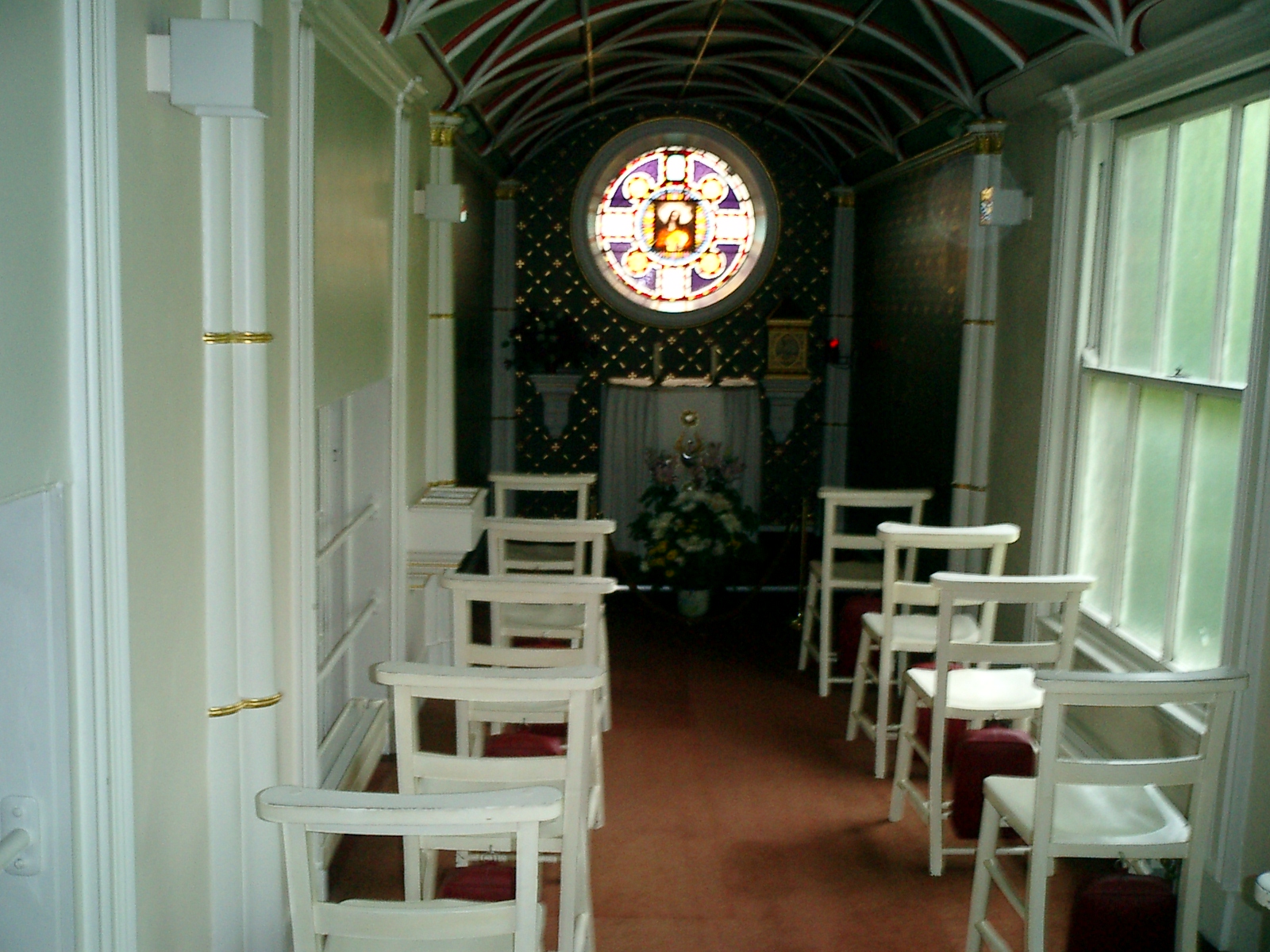 Drawing on people from the local Catholic parishes I would hope to start groups that meet for the singing of an Office - Vespers and or Compline or Choral Evensong and fellowship on a week night; and have talks on the prayer in the home and parish as described by the The Little Oratory. This book was intended as a manual for the spiritual life of the New Evangelization and would ideally be one that supports the transmission of practices that are best communicated by seeing, listening and doing. These weekly 'TLO meetings' would be the ideal foundation for learning and transmitting the practices. They would be very likely a first point of commitment for Catholics who might then be interested in getting involved in other ways. It would enable them also to go back to their families and parishes teach any others there who might be interested to learn.
Drawing on people from the local Catholic parishes I would hope to start groups that meet for the singing of an Office - Vespers and or Compline or Choral Evensong and fellowship on a week night; and have talks on the prayer in the home and parish as described by the The Little Oratory. This book was intended as a manual for the spiritual life of the New Evangelization and would ideally be one that supports the transmission of practices that are best communicated by seeing, listening and doing. These weekly 'TLO meetings' would be the ideal foundation for learning and transmitting the practices. They would be very likely a first point of commitment for Catholics who might then be interested in getting involved in other ways. It would enable them also to go back to their families and parishes teach any others there who might be interested to learn.
We could perhaps sell art by making it visible on the walls or have a permanent, small gallery space adjacent to the sitting area (provided it was good enough of course - better nothing at all than mediocre art!). All would available in print form online as well of course, just as talks could be made available much more widely and broadcasted out across the net if there was interest. This is how the local becomes global.
What I am doing here is taking the business model of the cafe and combining it with the business model of the Institute of Catholic Culture which is based in Arlington Diocese in Virginia. I wrote about the great work of Deacon Sabatino and his team at the ICC in Virginia in an article here called An Organisational Model for the New Evangelization - How To Make it At Once Personal and Local, and have International Recognition. His work is focussed on Catholic audiences, and is aimed predominently at forming the evangelists, rather than reaching those who have not faith (although I imagine some will come along to their talks). By having an excellent program and by taking care to ensure that his volunteers feel involved and are appreciated and part of a community (even organising special picnics for them) Deacon Sabatino has managed to get hundreds volunteering regularly.
Another group that does this just well is the Fra Angelico Institute for Sacred Arts in Rhode Island run by Deacon Paul Iacono. I have written about his great work here. The addition of a coffee shop give it a permanent base and interface with non-Catholics and even the non-churched.
 I would start in a city neighborhood in an area with a high population and ideally with several Catholic parishes close by that would provide the people interested in attending and be volunteers and donors helping the non-coffee programs. It always strikes me that the Bay Area of San Francisco, especially Berkeley, is made for such a project. There is sufficiently high concentration of Catholics to make it happen, a well established cafe culture; and the population is now so far past 'post-Christian' that there is an powerful but undirected yearning for all things spiritual that directs them to a partial answer in meditation centers, wellness groups, spiritual growth and transformation classes, talks on reaching for your 'higher self' and so on. Many are admittedly hostile to Christianity, but they seek all the things that traditional, orthodox Christianity offers in its fullness although they don't know it. Provided that they can presented with these things in such a way that it doesn't arouse prejudice, they will respond because these things meet the deepest desire of every person.
I would start in a city neighborhood in an area with a high population and ideally with several Catholic parishes close by that would provide the people interested in attending and be volunteers and donors helping the non-coffee programs. It always strikes me that the Bay Area of San Francisco, especially Berkeley, is made for such a project. There is sufficiently high concentration of Catholics to make it happen, a well established cafe culture; and the population is now so far past 'post-Christian' that there is an powerful but undirected yearning for all things spiritual that directs them to a partial answer in meditation centers, wellness groups, spiritual growth and transformation classes, talks on reaching for your 'higher self' and so on. Many are admittedly hostile to Christianity, but they seek all the things that traditional, orthodox Christianity offers in its fullness although they don't know it. Provided that they can presented with these things in such a way that it doesn't arouse prejudice, they will respond because these things meet the deepest desire of every person.
Here's the additional element that holds it all together. As well as the workshops or classes I have mentioned I would have the Liturgy of the Hours prayed in a small but beautiful chapel adjacent to and accessible from the cafe on a regular basis, ideally with the full Office sung. The idea is for people in the cafe to be aware that this is happening, but not to feel bound to go or guilty for not doing so. I thought perhaps a bell and announcement: 'Lauds will be chanted beginning in five minutes in the chapel for any who are interested.' Those who wish to could go to the chapel and pray, either listening or chanting with them. The prayer would not be audible in the cafe. So those who were not interested might pause momentarily and then resume their conversations.
From the people who attend the TLO meetings I would recruit a team of volunteers might volunteer to sing in one or more extra Offices during the week if they could. If you have two people together, meeting in the name of Jesus, they can sing an Office for all. The aim is to have the Office sung on the premises give good and worthy praise to God for the benefit of the customers, the neighbourhood, society and the families and groups that each participates in aside from this and for the Church.
When the point is reached that the Office is oversubscribed, we might encourage groups to pray on behalf of others also in different locations by, for example singing Vespers regularly in local hospitals or nursing homes. I describe the practice of doing this in an appendix in The Little Oratory and in a blog post here: Send Out the L-Team, Making a Sacrifice of Praise for American Veterans.
As this grows, the temptation would be to create a larger and larger organization. This would be a great error I think. The preservation of a local community as a driving force is crucial to giving this its appeal as people walk through the door. There is a limit to how big you can get and still feel like a community. Like Oxford colleges, when it gets to big, you don't grow into a giant single institution, but limit the growth and found a new college. So each neighborhood could have its own chant cafe independently run. There might be, perhaps a central organization that offers franchises in The Way of Beauty Cafes so that the materials and knowledge needed to make it a success in your neighborhood are available to others if they want it.
I have made the point before that eating and drinking are quasi-liturgical activities by which we echo the consuming of Christ Himself in the Eucharist (it is not the other way around - the Eucharist comes first in the hierarchy). So it should be no surprise to us that food and drink offered with loving care and attention open up the possibilities of directing people to the love of God. If the layout and decor are made appropriate to that of a beautiful coffee shop and subtly and incorporating traditional ideas of harmony and proportion, and colour harmony then it will be another aspect of the wider culture that will stimulate the liturgical instincts of those who attend. (I have described how that can be done in the context of a retail outlet in an appendix of The Little Oratory.) We should bare in mind Pope Benedict's words from Sacramentum Caritatis (71):
'Christianity's new worship includes and transfigures every aspect of life: "Whether you eat or drink, or whatever you do, do all to the glory of God." (1Cor 10:13) Here the instrinsically eucharistic nature of Christian life begins to take shape. The Eucharist, since it embraces the concrete, everyday existence of the believer, makes possible, day by day, the progressive transfiguration of all those called by grace to reflect the image of the Son of God (cf Rom 8:29ff). There is nothing authentically human - our thoughts and affections, our words and deeds - that does not find in the sacrament of the Eucharist the form it needs to be lived in the full.'
So Jo Brand, we'll put away the bread knife and offer the bread instead!
Step one seems to be...first get your coffee shop. Anyone who thinks they can help us here please get in touch and we'll make it happen!
Cardinal Burke on the value of the liturgy in forming and preserving the faith
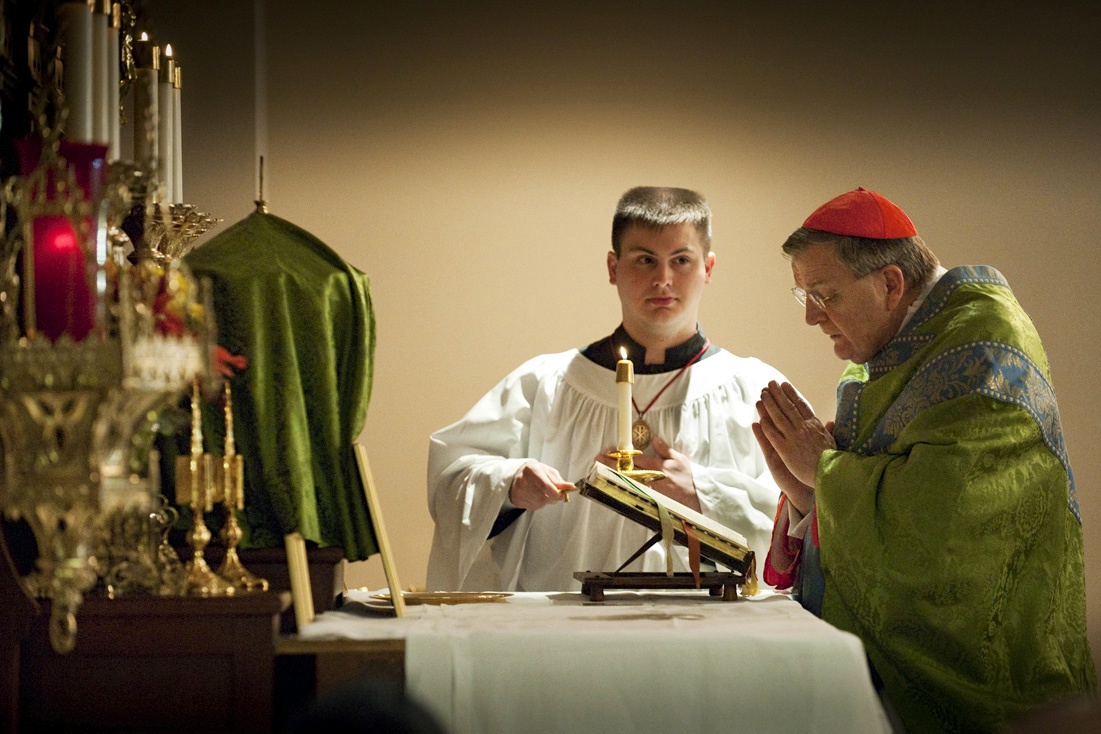 In a recently published interview on LifeSiteNews.com, here, Cardinal Burke made the following statement about the value of the liturgy. The question asked by the writer, Izabella Parowicz: how can our worship of God help us stand up in defence of human life?
The Cardinal's reply was: 'According to the ancient wisdom of the Church, the law of worship is essentially connected to the law of belief and the law of practice. Christ comes into our midst through the Sacred Liturgy, especially the Sacraments of the Most Holy Eucharist and of Penance, to cleanse our hearts of sin and to inflame our hearts with His own love through the outpouring of the Holy Spirit. Only when we have a strong sense of the reality of the encounter with Christ in the Sacred Liturgy will we understand the truths of the faith and the moral life, and what they mean for our daily living. This sense is fostered by a manner of celebrating the Sacred Liturgy with our eyes fixed on Christ and not on ourselves. It should not surprise us that the period of post-Conciliar experimentation with the Sacred Liturgy, a period which was marked by so many liturgical abuses, was accompanied by a loss of faith and by moral decline. If the Sacred Liturgy is seen as a purely human activity, an invention of man, it will no longer be true communion with God and, therefore, will no longer nourish the faith and its practice in everyday living.'
In a recently published interview on LifeSiteNews.com, here, Cardinal Burke made the following statement about the value of the liturgy. The question asked by the writer, Izabella Parowicz: how can our worship of God help us stand up in defence of human life?
The Cardinal's reply was: 'According to the ancient wisdom of the Church, the law of worship is essentially connected to the law of belief and the law of practice. Christ comes into our midst through the Sacred Liturgy, especially the Sacraments of the Most Holy Eucharist and of Penance, to cleanse our hearts of sin and to inflame our hearts with His own love through the outpouring of the Holy Spirit. Only when we have a strong sense of the reality of the encounter with Christ in the Sacred Liturgy will we understand the truths of the faith and the moral life, and what they mean for our daily living. This sense is fostered by a manner of celebrating the Sacred Liturgy with our eyes fixed on Christ and not on ourselves. It should not surprise us that the period of post-Conciliar experimentation with the Sacred Liturgy, a period which was marked by so many liturgical abuses, was accompanied by a loss of faith and by moral decline. If the Sacred Liturgy is seen as a purely human activity, an invention of man, it will no longer be true communion with God and, therefore, will no longer nourish the faith and its practice in everyday living.'
This simple explication of what is summed up in the ancient phrase lex orandi, lex credendi - rule of prayer, rule of faith. If we accept what he says, it tells us the when the faith is waning, we must look first at liturgical practice for the answer. Furthermore, given that the contemporary culture is an incarnation of the core priorities and beliefs of society, the greatest weapon we have for the evangelization of the culture is the liturgy. This is how we create a culture of life.
As an aside, this is precisely the principle that Leila Lawler and I had in mind when we wrote our book, The Little Oratory - A Beginners Guide to Prayer in the Home. This is promoting the idea of liturgical piety in the home that is derived from and points to the Mass. The Liturgy of the Hours is an overflowing of the Mass into the day and into our daily lives and the praying of the Liturgy of the Hours, therefore, is a supernatural key to the ordering of every aspect of our lives in accordance with a liturgical piety. So as well as focussing on the most important matter of the Mass, we should consider also the Liturgy of the Hours. Accordingly all Catholic devotions should support rather than distract from our liturgical practice. When all of this is harmonised the life prayer is one that makes ordinary living easier and not (as one might believe sometimes) a burden - an ever increasing list of things that I ought to be doing, and feel more and more guilty about when I fail to do them all.
EWTN to Run TV Series About the Glory of the Latin Mass
 EWTN has announced the debut of Extraordinary Faith, a television series showcasing the beauties of Sacred Tradition and the Tridentine Mass.
Episode 1 was filmed at the historic Mission San Juan Capistrano in California, located about one hour south of Los Angeles. Episode 1 includes some background information about the series, as well as an interview with George Sarah, a Hollywood composer who was asked to become president of Una Voce Los Angeles after he organized a number of special high-profile Tridentine Masses in historic churches.
EWTN has announced the debut of Extraordinary Faith, a television series showcasing the beauties of Sacred Tradition and the Tridentine Mass.
Episode 1 was filmed at the historic Mission San Juan Capistrano in California, located about one hour south of Los Angeles. Episode 1 includes some background information about the series, as well as an interview with George Sarah, a Hollywood composer who was asked to become president of Una Voce Los Angeles after he organized a number of special high-profile Tridentine Masses in historic churches.
It is George who has alerted me to this. I met him for the first time several years ago on a trip to Los Angeles and have written articles on his music - he is an enigmatic figure who is engaging with the contemporary culture constructively. His style has been described as electronic chamber music. He performs with a traditional string trio, but accompanies them on electronic keyboards and drum machines. It has a haunting quality and a modern feel but, and I think it is more than simply the choice of instruments, it has a sense of traditional form about it as well. I wrote about his music in my blog here.
Joy Lanfranchi of Una Voce Orange County discusses the annual Lenten Pilgrimage from St. Michael’s [Norbertine] Abbey to the Mission, culminating, not surprisingly, with a Latin Mass. DVD copies of this and every episode of Extraordinary Faith will be available for sale from EWTN’s Religious Catalog. Our contract with EWTN also permits us to post each episode on our web site, one month after it debuts on the network. Beginning Wednesday, May 14, 2014, Episode 1 will be available for viewing on www.extraordinaryfaith.tv.
Please note that the site is not yet up, but will go live no later than Tuesday, April 8. At that time, you will be able to view a trailer introducing the series on the site. EWTN beginning Monday, April 14, 2014 at 1:30 AM Pacific time. The episode will be re-run on Good Friday, April 18, 2014 at 11:00 PM Pacific time. The network wanted to run the episode during Holy Week because of the Lenten Pilgrimage segment. EWTN is considering future airings of Episode 1 at more convenient times of the day.
https://www.facebook.com/UnaVoceLA
https://www.facebook.com/ExtraordinaryFaith
How the Ancient Sarum Rite Formed the Art and Architecture of a Tiny Country Church in Devon, England
 Here are some photos of a tiny church in Devon. The tour of the church was given to myself and the rest of the class on the Maryvale's Art Beauty and Inspiration course that was taking place at Buckfast Abbey in Devon. As part of this, we asked Michael Vian Clark, who taught chant to the monks at the abbey, and who is a keen local historian to talk to us about one of the local churches. He is now based in Rome where has has recently begun his studies as a seminarian (for the Diocese of Plymouth). Michael is a keen student of the Sarum Rite and chanted for us in the church (teaching us to accompany him with an organum drone) as he explained how this was the music that would have resonated throughout this church prior to the reformation.
Here are some photos of a tiny church in Devon. The tour of the church was given to myself and the rest of the class on the Maryvale's Art Beauty and Inspiration course that was taking place at Buckfast Abbey in Devon. As part of this, we asked Michael Vian Clark, who taught chant to the monks at the abbey, and who is a keen local historian to talk to us about one of the local churches. He is now based in Rome where has has recently begun his studies as a seminarian (for the Diocese of Plymouth). Michael is a keen student of the Sarum Rite and chanted for us in the church (teaching us to accompany him with an organum drone) as he explained how this was the music that would have resonated throughout this church prior to the reformation.
Michael has written a description for NLM readers, which I give below. There are some aspects of this that particularly strike me. When Fr Lang of the London Oratory spoke about church architecture this summer at Sacra Liturgia 2013 in Rome, he stressed the importance of thresholds that clearly separate the temple, the place of worship from the outside world. The porch or the cloister, in grander churches, become especially important in this respect in churches that are designed for the Sarum Rite. This rite has many processions that emphasise the earthly pilgrimage from the City of Man to the City of God. This point of pilgrimage by which even in this life we can by degrees be transformed and participate in the divine nature through participation in the sacred liturgy, is a feature of gothic art, which stylistically spans the divide between the shadowy fallen world of the baroque; and the heavenly state of eschatological man as revealed by the icon. As Jean Corbon describes in his book the Wellspring of Worship, by being part of the mystical body of Christ, his Church, we can participate in the transfigured Light.
A book has recently been published that looks at the design of Salisbury Cathedral in the 13th Century, here, relating to the regular processions that took place. We see similar influences even in this little country church and its humble porch. As Michael puts it:: 'The porch had particular significance in the Ritual of the Use of Sarum, which involved more regular processions outside of the Church building than other expressions of the Roman Rite. Indeed there were exceptional processions on Feasts such as Candlemas, Palm Sunday, Easter, Ascension, Pentecost, Corpus Christi and Rogation Days which included a station outside at the 'Palm Cross' - a stone structure in the churchyard with ascending steps. Here at Ashton the base of the Palm Cross is still visible, directly opposite the porch with its image niche above the main portal. The porch was the place where the Rite of Baptism, Holy Matrimony and the Churching of Women actually began - the books describe the location ante ostium Ecclesiae. The threshold of the Church was therefore more than mere weatherproofing. It had its own liturgical function.'
These painting probably survived because the church is so remote and there would have been strong local sentiment to keep them. There is a pale fresco on the wall which was revealed when a painting that had previously hung on that section of the wall for centuries was removed.
What we see here is an indication of just how colourful and ornate even a small country church would have been during the period when this gothic church, in the English perpendicular style, though very simplified, was built. There is an ornate rude screen. The floor, which immediately caught my eye because of its geometric patterned form is probably a Victorian renovation, Michael told me.
Here are some thoughts that Michael has put down for us in connection with this church:
''The Church of St John the Baptist is dramatically situated on a rocky outcrop overlooking the Teign Valley in Devon, England. It was, and still is, quite remote: accessible only by high-sided lanes. It is part of a family of churches in this valley that share similar architectural features: one may reasonably speculate the hand of the same masons, carpenters and glass painters.
'Like so many Devonian churches, the details (that is to say the window tracery, screenwork and fragments of painted glass) are generally of the late fourteenth to early fifteenth century, but at Ashton, as elsewhere, this disguises much more ancient fabric into which such details were inserted as part of a widespread programme of enhancement and beautification of liturgical spaces right up to the Reformation. The most striking addition to the typical dual-cell structure of a post-Conquest church is the North aisle, separate by slender and elegant Beer stone arcades that may derive inspiration from the late thirteenth century design of Exeter Cathedral. This aisle was built to house a secondary altar, the sanctuary of which later became the 'family pew' of the Chudleigh family, giving a strong clue as to its original benefactors.
'Later, a porch was also added - a feature that had particular significance in the Ritual of the Use of Sarum, [as mentioned]. The glory of Ashton is no doubt the beautifully preserved Rood Screen and Parclose Screen that respectively separate Nave from Chancel and the two altars one from the other. Rood Screens were a particularly favoured devotional expression in England as a consequence of the division of legal responsibility for the Church fabric itself: Chancels were the responsibility of the Living whereas Naves were the responsibility of the Parish.
'The Rood Screen marked the boundary and parishes are known to have been anxious to ensure their screen and Rood were as impressive as possible (and more impressive than their neighbours.) Typically a Screen has three components: a Dado with images of the Saints; Tracery work that permits a view of the High Altar and above this a Loft which gave access to the Rood itself (composed of a large image of the Crucified Lord flanked either side by His Mother and the Beloved Disciple) which was the dominating feature of the people's part of the Church.
'At Ashton the Screen was sensitively restored by Harry Hems of Exeter in the early twentieth century and the Rood itself has been restored, albeit in unpainted wood. The image sequence is a mixture of the local and universal and sometimes grouped in logical sequence - e.g. Doctors, Evangelists, Martyrs, Holy Helpers; sometimes not. An interesting feature is that of local saint, Sativola or Sidwell who features with the scythe of her martyrdom both on the screen and in glass at Ashton, demonstrating the strength of her cult in the former diocese of Exeter. The connections with mainstream (and very Roman) Catholicism are also clear: here are depicted Popes, Cardinals, Bishops and international saints, such as Zita of Lucca and Anthony of Egypt as well as saints such as Ursula and, possibly Thomas of Canterbury and Boniface that connected Britain with Continental Europe.
'Admittedly the quality of the artistry is not especially high - note that the faces of the saints are essentially the same, however this Screen has even more to reveal. Perhaps the most interesting feature is the sequence of catechetical paintings on the reverse of the Screen in the Chudleigh chapel (which survive) and the Sanctuary (which are faint outlines only) which seem to have been added later. The panels of the Annunciation and Visitation are conventional enough, but texts for the Transfiguration (a later Feast for the Universal Church) demonstrate a dynamic concern to keep up to date liturgically, even in this remote corner of Devon. Other features of note include a rather faded but nonetheless striking figure of the Lord showing his wounds, after the manner of the Mass of St Gregory. Unlike the extant Sculpture of the same theme in Exeter Cathedral, here this does not form a reredos, but is instead a devotional painting. Fragments of glass, including figure painting of exceptionally high quality survives in the North aisle, notably the figure of St Sidwell mentioned above and St Gabriel holding a scroll bearing the text of the Annunciation. In summary, this is a remarkable Church not only for the survival of the liturgical apparatus of the Use of Sarum, but also for the quality of the workmanship on display. A Church worth a detour of many miles to see.''
In this view down the ailse, the second altar Michael refers to is just barely visible to the left, we seen the section inside that portion of the screen later on.
This is the area at the front of the church that contains the second altar.
The fresco below was revealed when a more recent wall hanging was removed.
Has Pope Francis Saved Western Culture?
 One small change to the wording of the mission of the Anglican Ordinariate, instituted by Pope Francis might have a profound effect on how it participates in the Church's mission of evangelisation; and on English speaking culture.
When I was at the Sacra Liturgia Conference this past summer, speaker after speaker emphasised the importance of Latin as the norm in the Roman rite. Nevertheless, a warm welcome was given also to several priests from the Anglican Ordinariate, which will rarely offer Mass in Latin, and it was offered the platform when Mgr Keith Newton gave a talk in which he described progress in establishing the precise form of the Ordinariate liturgy. I heard no one say that they saw any contradiction in this. Similarly, the developments in the Ordinariate Use liturgy are, apparently enthusiastically, reported on this site as they occur and have been ever since it was created. The fact that the Ordinariate Use is taken seriously by all these traditionally minded Latin-orientated Catholics seems to me to indicate a recognition of the general point, that the vernacular does have an important place in the liturgy; and more particularly that English has a privileged position amongst vernaculars. Where might this be going in the future, I wondered?
One small change to the wording of the mission of the Anglican Ordinariate, instituted by Pope Francis might have a profound effect on how it participates in the Church's mission of evangelisation; and on English speaking culture.
When I was at the Sacra Liturgia Conference this past summer, speaker after speaker emphasised the importance of Latin as the norm in the Roman rite. Nevertheless, a warm welcome was given also to several priests from the Anglican Ordinariate, which will rarely offer Mass in Latin, and it was offered the platform when Mgr Keith Newton gave a talk in which he described progress in establishing the precise form of the Ordinariate liturgy. I heard no one say that they saw any contradiction in this. Similarly, the developments in the Ordinariate Use liturgy are, apparently enthusiastically, reported on this site as they occur and have been ever since it was created. The fact that the Ordinariate Use is taken seriously by all these traditionally minded Latin-orientated Catholics seems to me to indicate a recognition of the general point, that the vernacular does have an important place in the liturgy; and more particularly that English has a privileged position amongst vernaculars. Where might this be going in the future, I wondered?
Then shortly after returning from Rome I read in Damian Thompson's blog in the Telegraph an article that was headed Pope Francis Embraces the Ordinariate and Increases Its Power to Evangelise. In it he said: 'Francis has widened the remit of the Ordinariates in Britain, America and Australia. Until now, only ex-Anglicans and their family members could join the new body. But, thanks to a new paragraph inserted into the Ordinariate's constitution by Francis, nominal Catholics who were baptised but not confirmed can join the structure. Indeed, the Holy Father wants the Ordinariates to go out and evangelise such people.'
The paragraph he referred to was Complementary Norms, Article 5 §2: 'A person who has been baptised in the Catholic Church but who has not completed the Sacraments of Initiation, and subsequently returns to the faith and practice of the Church as a result of the evangelising mission of the Ordinariate, may be admitted to membership in the Ordinariate and receive the Sacrament of Confirmation or the Sacrament of the Eucharist or both. This confirms the place of the Personal Ordinariates within the mission of the wider Catholic Church, not simply as a jurisdiction for those from the Anglican tradition, but as a contributor to the urgent work of the New Evangelisation. As noted by the Congregation for the Doctrine of the Faith, enrolment into a Personal Ordinariate remains linked to an objective criterion of incomplete initiation (i.e. baptism, eucharist, or confirmation are lacking), meaning that Catholics may not become members of a Personal Ordinariate for purely subjective motives or personal preference.’
I have no special inside knowledge on the Ordinariate or the intentions for it. But I am struck by the potential for a profound affect on the wider culture globally for the good of what has happened recently. This is because of the relationship between liturgy and culture. Again, at Sacra Liturgia 2013, many speakers echoing Pope Benedict in the Spirit of the Liturgy, emphasised the connection between liturgy and culture. We were told for example, that an education in art, architecture, music and literature was necessary for the development of one's 'liturgical instincts'. The forms of the culture that we should study, therefore, are those that point us to liturgical forms (Catholic educators take note!); and those liturgical forms ought to be a 'liturgical high culture' - elevated cultural forms that draw us upwards but are nevertheless accessible and easily grasped.
The connection between the liturgy and culture is profound. Man is made to worship God; his worship is what establishes and shapes that relationship with God; and this, in turn influences all our human interactions and is the most significant factor in contributing to the grace and beauty of our actions and interactions. The culture might be viewed as the aggregate, the vector sum of these and is a reflection of - or incarnation of - our core values, priorities and beliefs.
While this connection can be conceived as a symbiotic dynamic, with each - liturgy and culture -simultaneously reflecting and nourishing the other, the relationship between the two is not a partnership of equals. The liturgy is a more powerful influence on the culture than the culture is on the liturgy. So in consideration of a reform of the culture, we should always look to ourselves first and strive for liturgical orthodoxy and purity. Accordingly we should strive to have liturgical culture high culture that is noble and naturally accessible. This is a culture that it makes high demands of those who create these forms - the writers, artists, composers and architects - but never of those who see it and hear it. It should touch people and then draw them upwards through the beauty of its forms, in harmony with worship. This accessible divine beauty can touch the soul in a way 'beyond words' (I'm thinking of St Augustine here).
In his book on the liturgy published first in 1918, the Spirit of the Liturgy, Romano Guardini tells us that liturgical forms are necessarily reflective of a high culture: 'Culture enables religion to express itself and helps distinguish the essential from the non-essential...as a rule, the spiritual life should be impregnated with a genuine and lofty culture... If the cultural element of prayer declines, the ideas become impoverished, the language coarse, the imagery clumsy and monotonous and the emotional paltry and artificial.' (p34)
He also describes the influence in the other direction, that the appropriate forms in the liturgy inspire and sustain a vibrant and beautiful contemporary culture: "The liturgy possesses a tremendously compelling form of expression, which is a school of religious training and development to the Catholic who rightly understands it and which is bound to appear to the impartial observer as a cultural formation of the most lofty and elevated kind." (p47; pub Herder and Herder).
Historically, if we look at the art, music and architecture we can see how the liturgical forms have influenced the culture. The baroque of the 17th century, for example, started off as part of the renewal of the Catholic counter-reformation and then the liturgical forms became the models in style for the profane (as in not explicitly sacred) forms as well.. So powerfully striking and beautiful was the wider culture created by this, that it became the standard throughout Europe, even in the protestant lands, for example, the Netherlands and England. The public buildings, the portraits and landscapes of their artists and even the music took inspiration from the Catholic liturgical culture.
The effect can be negative as well. If the liturgy is not beautiful and the cultural forms that are associated with it are deliberately made to take their inspiration from the wider secular culture that is not derived from liturgical forms, then a downward spiral is created in which the culture of faith and contemporary culture in turn cause the decline of the other. This is what we have seen most strikingly in modern times, accelerating in the 20th century (although the signs were there before that).
Catholics cannot ignore this question of contemporary culture. Even if we imagine a situation in which you have healthy and beautiful liturgical culture and that is also somehow disconnected from the wider culture and stable (a situation I can't imagine would ever be the case) we would still have a duty to try to transform the contemporary culture into one that reflected this liturgical culture. This is because those who do not go to church will not see the liturgy, which is our most powerful tool in evangelisation. But they do see the wider contemporary culture every day of their lives. If the wider culture reflects the beauty of the cosmos nourished by the liturgy, then its power will draw people to God and to His Church and provoke a curiosity and receptivity to the Word. This is the message of recent Popes in emphasising the power of beauty (for example Pope Benedict in his discussion of the via pulchritundinis). This is why incidentally, on a blog about liturgy, I consider it relevant to consider how this connects with secular culture - in my opinion we must not separate the two.
And what of the Ordinariate Use liturgy? Latin liturgy can stimulate a beautiful Catholic culture in any language of course but, I believe, the opening up of the traditional Anglican forms adapted for use in the Ordinariate supports this in a new and powerful way. The Anglican Ordinariate has elevated liturgical forms that do not look to modern secular culture for inspiration (unlike many of those in other vernacular liturgies), but rather, to the authentic Roman Church tradition and English high culture of the past. Therefore it can act powerfully to evangelise the culture of English speakers.
Why the special focus on English? I suggest that the influence of English in the world is great and is steadily increasing and hand in hand with this is English speaking culture, for good or ill. One might say that English is the lingua vulgata - the common language - of our age, and who knows for how long afterwards, perhaps centuries. It is the second most spoken (after Mandarin) as a first language and if you take second languages into account the gap is narrowed and getting narrower, for English is the international language of business and technology. This was emphasised to me recently when listening to Venezuelan radio and a discussion in Spanish (translated by my wife) about the fact that English is beginning to influence the way that Spanish is spoken by the general population as it incorporates its vocabulary and idioms.
It therefore becomes vital that we evangelise Western culture which is spreading globally, and a liturgy rooted in English language is a powerful means of doing this. Now that the Ordinariate Use is free to reach out beyond former Anglicans this can be at the centre of this. It might not be only through direct effect - one could envisage the situation where it's forms might also have an impact on the Roman Rite in English which is the not Ordinariate Use. At Thomas More College of Liberal Arts, where I teach, we regularly have the Extraordinary Form, and the Ordinary Form in English and Latin. We also sing the Liturgy of the Hours daily, with the psalms most commonly sung in English. For our vernacular liturgies we look to these Anglican forms of music and prayer in our vernacular liturgy for inspiration, even though it is not Ordinariate Use.
Incidentally I have heard some argue openly that they do not like to see a well done vernacular, or even Latin Novus Ordo, because they feel that the worse the alternatives are, the more likely it is that the Extraordinary Form will dominate. I do not accept this approach at all. In my mind, we should strive to make our participation in all liturgy (vernacular or not, Ordinariate Use of not) dignified and beautiful; in my mind this supports rather than diminishes the re-establishment of Latin in the liturgy in such a way that participation is active (in the proper sense of the word).
If we are to evangelise the English speaking world, which increasingly means the whole world, in a powerful way it could be a through a contemporary culture of the English. This contemporary culture could develop powerfully out of a beautiful English language liturgy that points to that of Shakespeare and Donne; and musical forms that are derived from the pre-reformation Sarum Liturgy. I would hope to see a flourishing of creativity inspired by this in which noble and accessible forms of both liturgical and contemporary culture are produced (in the way the Shakespeare was the popular culture of his day). It seems possible to me that the Anglican Ordinariate could be a force the good in this area.
The Mystery of Mystagogy! Catholic Education is an Education in the Liturgy...nothing else!
 As described before, on my return from the Sacra Liturgia 2013 conference in Rome I wrote an article for Catholic Education Daily in which I argued that the essence of Catholic education is education in the liturgy. The article is A School of Love: the Sacred Liturgy and Education. As part of the recommended reading of the conference and since writing this I got around to reading Sacramentum Caritatis. Within the section on 'mystagogy' this very matter is discussed directly.
Mystogogy means literally in Greek, 'learning about the mysteries'. Mystagogy in this context is, to quote Stratford Caldecott ‘the stage of exploratory catechesis that comes after apologetics, after evangelization, and after the sacraments of initiation (baptism, Eucharist, and confirmation) have been received’ and is sometimes referred to a formal stage of education of the newly baptised Christian in living out the faith.
As described before, on my return from the Sacra Liturgia 2013 conference in Rome I wrote an article for Catholic Education Daily in which I argued that the essence of Catholic education is education in the liturgy. The article is A School of Love: the Sacred Liturgy and Education. As part of the recommended reading of the conference and since writing this I got around to reading Sacramentum Caritatis. Within the section on 'mystagogy' this very matter is discussed directly.
Mystogogy means literally in Greek, 'learning about the mysteries'. Mystagogy in this context is, to quote Stratford Caldecott ‘the stage of exploratory catechesis that comes after apologetics, after evangelization, and after the sacraments of initiation (baptism, Eucharist, and confirmation) have been received’ and is sometimes referred to a formal stage of education of the newly baptised Christian in living out the faith.
Section 64 of Pope Benedicts XVI's encyclical Sacramentum Caritatis is entitled 'Mystagogical Catechesis'. In this he says:
'The Church's great liturgical tradition teaches us that fruitful participation in the liturgy requires that one be personally conformed to the mystery being celebrated, offering one's life to God in unity with the sacrifice of Christ for the salvation of the whole world...The mature fruit of mystagogy is an awareness that one's life is being progressively transformed by the holy mysteries being celebrated. The aim of all Christian education, moreover, is to train the believer in an adult faith that can make him a "new creation", capable of bearing witness in his surroundings to the Christian hope that inspires him.'
Once again, the full article is here.
Catholic Education Daily is run by the Cardinal Newman Society which is dedicated to the promotion of faithful Catholic education in our schools and colleges.
A Single Mathematical System that Unifies Liturgy and Physics - and Removes Wave Particle Duality
 Are there any mathematicians out there who can tell me if this is nonesense? It might turn the whole of science upside down.
I recently did a posting about how the passage through sacred time might be viewed as a helical progression based upon the significance of the numbers 7 and 8 in the liturgy as commented on by St Thomas Aquinas. In the comments at the bottom of the article a regular reader called Alexey suggested that if this is so we can conclude that time exists in three dimensions. Here is his comment: Time then is more than one dimension. Just like, when traveling through space, it is not enough to say “I am at 40 degrees latitude”, — the longitude must be specified as well, so it is not enough to say “40 days passed”, one has to add “it is Thursday".
Are there any mathematicians out there who can tell me if this is nonesense? It might turn the whole of science upside down.
I recently did a posting about how the passage through sacred time might be viewed as a helical progression based upon the significance of the numbers 7 and 8 in the liturgy as commented on by St Thomas Aquinas. In the comments at the bottom of the article a regular reader called Alexey suggested that if this is so we can conclude that time exists in three dimensions. Here is his comment: Time then is more than one dimension. Just like, when traveling through space, it is not enough to say “I am at 40 degrees latitude”, — the longitude must be specified as well, so it is not enough to say “40 days passed”, one has to add “it is Thursday".
What I fascinating idea. I have heard of multi-dimensional space (although really claim to understand the idea), but not three-dimensional time.
This immediately reminded me of someone I met years ago in Mountain View, California called Irwin Wunderman. His son was a friend of mine from my time studying engineering at Michigan Tech. Irwin was a brilliant man (he was in his seventies, I think, when I met him and he has since died). He was a PhD from Stamford, where he told me, his thesis was so advanced that even in awarding it his advisor told him that they weren't sure that they fully understood it. He had invented a pocket calculator in the 1960s in his garage, which had patented and then marketed (you can read about this here). He was also an entertaining character who loved to give tours of his house which had been a speakeasy and bordello in the 1920s and had even been raided by the Untouchables.
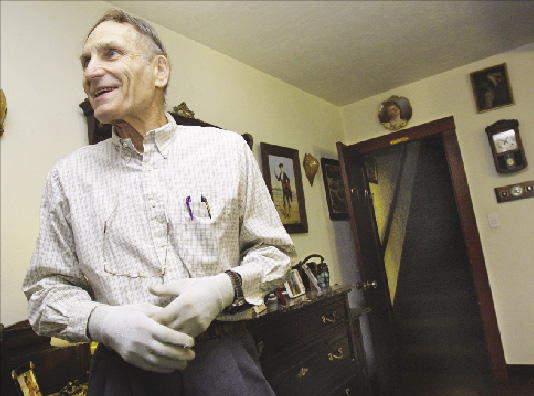 When I met him he had just written a book in which he described a number system he had developed in which he suggested that numbers do not progress linearly (as we normally imagine them) but in fact counting from one to two is a vector operation (even in the absract world of mathematics). In moving from one to two, the vector of the transition is almost linear, but not quite. It moves slight off in two other dimensions as well. This means that the process of counting follows not a linear scale but a helical path.
When I met him he had just written a book in which he described a number system he had developed in which he suggested that numbers do not progress linearly (as we normally imagine them) but in fact counting from one to two is a vector operation (even in the absract world of mathematics). In moving from one to two, the vector of the transition is almost linear, but not quite. It moves slight off in two other dimensions as well. This means that the process of counting follows not a linear scale but a helical path.
At the beginning of the conversation he had immediately launched into a complicated description of how his theories worked. I have a degree in materials science (which is the physics of solids) from Oxford University and a Masters in engineering. I was never a star student, but it does mean I have more than the average grasp of maths and science. Nevertheless, Irwin lost me in about three sentences. I was hopelessly out of my depth. So I stopped him and said: 'Don't tell me how this works. Tell me instead what the important consequences of this are.'
Then he told me that if you used his number system, rather than the conventional one, there were no irrational numbers and you could, for example, calculate precisely the area of a circle without having to use an approximate value for 'pi' (ratio of the length of the circumference of the circle to its diameter). Also, he said, through this he had come up with his own unified wave theory in which there was no wave-particle duality in the behaviour of photons, for example. I thought that this was staggering. If he really had done this then it could turn science upside down. However, Irwin couldn't find anyone to take any notice of him because he was not associated with any university. He was a complete amateur who had developed this at home. It wasn't just this (from what he was saying). It was so complicated that even most university mathematicians wouldn't understand him. Eventually he had managed to find someone to read and understand it who had some authority and his book was published. But even then, its publication passed largely unnoticed. You can find it on Amazon here.
I tried to show his book any scientists I knew, but I couldn't get anyone to take me seriously and as soon as anyone started to push me with further questions I couldn't answer them; and again, because Irwin was an amateur they were inclined not believe that it could possibly be true.
At the time I had not thought about the comparison with the progression of time and the liturgy in a helix, but it is a striking parallel. Perhaps it means that anything that has magnitude (and not just space and time) is three dimensional; because that magnitude is counted by numbers and the number system is three dimensional? Woh, I'm getting out my depth again...I this needs a real mathematician! Perhaps someone who reads this might be motivated to read Irwin's book and see whether there is anything to it. I would love to think there might be. Maybe this is unifying even more than waves and particles? We might have a bridge between the physical and the metaphysical. Readers help please!
Above: Irwin in his Mountain View house; below the garage in which he invented his desk calculator; and his invention as produced.
St Ephrem the Syrian on the nature of man - body, soul and spirit
 Over the summer, I read the Hymns on Paradise written by St Ephrem the Syrian. Ephrem is a 4th century saint who lived in modern day Turkey and wrote in Syriac. Although much of what he wrote is liturgical - in the form of hymns, it is theologically rich. There were two reasons why I read this. The first was at the suggestion of Dr William Fahey, who told me that Ephrem described the visual appearance of Adam and Eve both before and after the Fall. This was of interest to me because in his Theology of the Body, John Paul II asked artists to portray man in the manner of Adam and Eve prior to the Fall - 'naked without shame' - in order to reveal human sexuality as gift, that is, an ordered picture of human sexuality. In order to be able to do this, I wanted to do some reasearch to see what the Church Fathers had to say on what Original Man (ie man before the Fall) looked like. In the Christian tradition, we have iconographic art which portrays mankind redeemed and in heaven (Eschatological Man), and the baroque, which shows fallen man (Historical Man) but we have no fully formed tradition in which the form and theology are integrated to portray Original Man and so no visual vocabulary to draw on in order to paint him.
The desire to read him was reinforced recently on my trip to Spain, when I read Pope Benedict's Wednesday address on St Ephrem, a Doctor of the Church, as part of my own personal 'Office of Readings' in the morning (I have written about this here). In this Benedict tells us that St Ephrem is 'still absolutely timely for the life of the various Christian churches...a theologian who reflects poetically on the basis of Holy Scripture, on the mystery of man's redemption brought about by Christ, the Word of God incarnate'.
Over the summer, I read the Hymns on Paradise written by St Ephrem the Syrian. Ephrem is a 4th century saint who lived in modern day Turkey and wrote in Syriac. Although much of what he wrote is liturgical - in the form of hymns, it is theologically rich. There were two reasons why I read this. The first was at the suggestion of Dr William Fahey, who told me that Ephrem described the visual appearance of Adam and Eve both before and after the Fall. This was of interest to me because in his Theology of the Body, John Paul II asked artists to portray man in the manner of Adam and Eve prior to the Fall - 'naked without shame' - in order to reveal human sexuality as gift, that is, an ordered picture of human sexuality. In order to be able to do this, I wanted to do some reasearch to see what the Church Fathers had to say on what Original Man (ie man before the Fall) looked like. In the Christian tradition, we have iconographic art which portrays mankind redeemed and in heaven (Eschatological Man), and the baroque, which shows fallen man (Historical Man) but we have no fully formed tradition in which the form and theology are integrated to portray Original Man and so no visual vocabulary to draw on in order to paint him.
The desire to read him was reinforced recently on my trip to Spain, when I read Pope Benedict's Wednesday address on St Ephrem, a Doctor of the Church, as part of my own personal 'Office of Readings' in the morning (I have written about this here). In this Benedict tells us that St Ephrem is 'still absolutely timely for the life of the various Christian churches...a theologian who reflects poetically on the basis of Holy Scripture, on the mystery of man's redemption brought about by Christ, the Word of God incarnate'.
As Dr Fahey had indicated, there is much useful material written by St Ephrem on Original Man and I am in the process of pulling this together for a longer article. So in this respect, St Ephrem is certainly timely.
I'm sure the style of the translation had a lot to do with this as well (by Sebastian Brock), but I found him pleasurable as well as interesting reading. He was a prolific writer and so there's plenty more to look at in the future!
My reason for bringing all of this up here is that St Ephrem wrote something that caught my eye for another reason in the 9th of his Hymns to Paradise:
Far more glorious than the body is the soul, and more glorious still than the soul is the spirit, but more hidden than the spirit is the Godhead.
At the end, the body will put on the beauty of the soul, the soul will put on that of the spirit, while the spirit shall put on the very likeness of God's majesty.
For bodies shall be raised to the level of souls, and the soul to that of the spirit, while the spirit shall be raised to height of God's majesty.
This describes so well what Jean Corbon described as the transformation that happens to us when we are full participants in the liturgy, as described here. The icon of the transfiguration is an icon of the liturgy, he says, for we participate in Christ's transfiguration when we participate in the liturgy. This passage from St Ephrem suggests that the spirit is a special place in us that is in primary contact with God's majesty that is itself raised to God's majesty and is transfigured. This indicates a special place therefore for the spirit in our participation in the liturgy, for the liturgy is the way in which we ascend, by degrees in this life, to union with God which is complete, as St Ephrem puts it 'at the end' in paradise. It also reinforces an idea that Stratford Caldecot described in his essay, Towards a Liturgical Anthropology. Strat suggests that a lack of full acknowledgement of the spirit as the higher part of the soul has lead, in part, to an incomplete participation in the liturgy since the 19th century at least, and in turn has lead to the Catholic cultural decline that we are all so well aware of.
In another papal address, on St Gregory of Nyssa, Pope Benedict XVI himself referred to this anthropolgy of body, soul and spirit as being part of the tradition of the Church.
To summarise how the spirit relates to the soul here's my understanding: the spirit is the highest part of the soul. It is that part of the soul which touches on God, a portal for the grace that pours out from God 'transfiguring' us into the image and the likeness of God. The divinely created order of the human person is the spirit, which is closest to God, rules the rest of the soul which in turn rules the body. All move together in union and communion with God.
Wild Flowers in Spain (and Possible Implications for Population Control and the Culture of Death)
 During my visit to friends and family in Europe, I spent a a few days in Spain (during the last week of May). My parents have retired there (along with another million Brits). I was lucky in that the time of my visit was just the time when wild flowers are in bloom. I am no plant expert, but I did recognise a lot from my memories of my parents' garden in England when I was growing up. So I asked them if they would help me identify some of the plants and we set off to high meadows to photograph and identify them.
Also, I am trying to plant an English style perrenial garden in the farm that will be the new Thomas More College campus in Groton, Massachusetts. (I say 'will be' because we have to raise the money to build. This is not easy in the current economic climate, so please if anyone feels like donating, don't hesitate to contact us!) We have been following the planting scheme of the English garden designer Gertrude Jeckyll. From my first spring of planting here in the US, I recognised that many of the Spanish plants are in American gardens too. The photo above is of a thistle called echinops. We bought three to plant and they look pretty lonely at the moment while we wait for them to flourish and multiply. Here in Spain, there is a whole field of them next to my parents' house just growing wild.
During my visit to friends and family in Europe, I spent a a few days in Spain (during the last week of May). My parents have retired there (along with another million Brits). I was lucky in that the time of my visit was just the time when wild flowers are in bloom. I am no plant expert, but I did recognise a lot from my memories of my parents' garden in England when I was growing up. So I asked them if they would help me identify some of the plants and we set off to high meadows to photograph and identify them.
Also, I am trying to plant an English style perrenial garden in the farm that will be the new Thomas More College campus in Groton, Massachusetts. (I say 'will be' because we have to raise the money to build. This is not easy in the current economic climate, so please if anyone feels like donating, don't hesitate to contact us!) We have been following the planting scheme of the English garden designer Gertrude Jeckyll. From my first spring of planting here in the US, I recognised that many of the Spanish plants are in American gardens too. The photo above is of a thistle called echinops. We bought three to plant and they look pretty lonely at the moment while we wait for them to flourish and multiply. Here in Spain, there is a whole field of them next to my parents' house just growing wild.
The terrain in this area around Spain is man made. Even the areas where the flowers grow and seem uncultivated would be completely tree covered if they had not been cleared by man. It is dry, shrub filled landscape common in Mediterranean areas called 'maquis'. Very often the flowers flourish most on road or field edges in the areas where the soil has been turned over by human activity but it has not been paved over or planted with crops. A common plant in the maquis terrain is the broom. There are two common varieties here: Spanish broom and genista (French broom) which has smaller flowers, both are bright yellow. The photo below shows some genista growing on the edge of a cultivated olive grove. In the distance you see a ridge of mountains with pass, appearing as a notch cut into it. For our flower hunting expedition we headed for that pass. There is a footpath there on a disused railway line which allowed for great views and a great variety of species.
 The fact that the whole terrain is formed by man raises a question in my mind. What is the natural environment for wild flowers? Would these flowers be here at all if it weren't for man? If there were no man affected areas, would there be any terrain for them to grow in? Certainly, the ones I saw don't grow in the areas that are wooded, only on the edges made by man. Perhaps there are some plant experts out there who can answer these points definitively. What I can say is that these flowers are flourishing in those areas affected by man. If this man-affected terrain is the natural environment for wild flowers, and wild flowers are considered part of the natural world (along with the insect life engendered), then we would have to consider man's activity natural too.
The fact that the whole terrain is formed by man raises a question in my mind. What is the natural environment for wild flowers? Would these flowers be here at all if it weren't for man? If there were no man affected areas, would there be any terrain for them to grow in? Certainly, the ones I saw don't grow in the areas that are wooded, only on the edges made by man. Perhaps there are some plant experts out there who can answer these points definitively. What I can say is that these flowers are flourishing in those areas affected by man. If this man-affected terrain is the natural environment for wild flowers, and wild flowers are considered part of the natural world (along with the insect life engendered), then we would have to consider man's activity natural too.
Some extreme environmentalists that I have come across tend to assume that man's activity is unnatural and always detrimental to the ecosystem. I'm guessing that there others who object to the activities of modern man, but would consider a pre-industrial revolution, agrarian society (which would still create the landscape for wild flowers) as the natural form of activity for man. The first group would like to see man's effect on the world eliminated altogether, the second vastly reduced.
The reason that this is important to consider is that the degree to which we consider mankind's activity natural or unnatural affects whether or not we consider the the growing human population of the world a good thing or a bad thing. In both the cases cited above, that is if either we consider man's activity necessarily unnatural; or, taking the less extreme position, we consider the work of modern man unnatural and only that of primitive man's activity natural, it makes sense to advocate population reduction in the world. The few examples of modern man there are, the less unnatural behaviour there will be. The next step is to push for population control via the use of contraception and abortion.
The traditional Christian view is different. For the Christian man is the crowning glory of creation and his activity is not only natural but, potentially, the greatest of all life on earth. In fact, to the degree that his work is inspired, man can actually raise the natural world up to something higher, creating something closer to what it ought to be and to what it would have been prior to the Fall. This is not deny that man's activity can be highly destructive also. It depends on how wisely he makes use of his God-given freedom to cultivate the land.
When we have the Christian outlook, the way to deal with polution and mismanagement of the environment, is not to reduce the amount of human activity (by reducing the population), but to seek to transform human activity into something that is in harmony with creation. This is possible (at least partially in this life) only through the Church and this takes us again to the question of cultural transformation and liturical reform. Two connected themes I have spoken about often in this forum.
Anyway, we have now reached the high meadow and start to walk along the path through the notch:
 We surveyed the scene, book in hand:
We surveyed the scene, book in hand:
And then we started to look more closely. You can see the red poppies and yellow daisies in the meadow. But as you look at the limestone rock outcrops there are more to be seen, for example wild tyme:
Orchids and wild irises:
Here is another iris amongst a cluster of flowers of helianthemum, the rock rose, a common plant in the the garden.
In our day out, we did take time step back and enjoy the view of rural Spain from this elevated position.
Where irrigated, the ground is extremely fertile. This part of Andalusia exports fruit and vegetables. The view below is of the area beyond that notch in the ridge. There is a high fertile plain hidden away. The old railway track that we were walking on was built to carry the produce down to the coastline (near Malaga) for distribution. Now the transportation is by road you see trucks driving down the winding road all day during harvest time.
The examples of the flowers shown are as bright and beautiful as the garden varieties. There were many more that I could show, and will perhaps keep for another occasion. Many of these while beautiful in the wild, are not precisely what you would see in the garden, which would be hybrids. This again raises the question of what is more natural, a hybrid developed by man or a wild variety? Anyway, that's one for a future blog post.
How Do We Develop the Cultural Sensibilities of Children?
 I am regularly asked by parents how they can teach an appreciation of good traditional art to their children. One father recently went further than that and asked me if there was anything I could do to unculturate them in such a way that their sensibilities are in tune with a catholic culture in its broadest sense. These are the ideas that I offered to him.
1. All traditional training in art involves drawing by copying from nature and then copying the works of Old Masters. Ideally children would do both but precisely what they try to draw depends on how old they are. Very young children could colour in line drawings based upon traditional forms - I illustrated a couple of books with this in mind, for example see Sacred Heart of Jesus Coloring Book. The more sophisticated might be able to try some tonal work on a copy of a baroque painting. A great start for anybody would be gothic or Romanesque illuminated manuscripts. These are line drawings with limited modelling. They are great fun to draw and my experience is that Catholics relate to these Western icons more readily than to Eastern iconographic forms. If you to get hold of examples type 'psalter' into the Google Images search engine. You don't need to feel bound to sacred imagery. The psalters of this period contained pictures of the everyday life at the time. All the examples shown here are from the Westminster Psalter.
I am regularly asked by parents how they can teach an appreciation of good traditional art to their children. One father recently went further than that and asked me if there was anything I could do to unculturate them in such a way that their sensibilities are in tune with a catholic culture in its broadest sense. These are the ideas that I offered to him.
1. All traditional training in art involves drawing by copying from nature and then copying the works of Old Masters. Ideally children would do both but precisely what they try to draw depends on how old they are. Very young children could colour in line drawings based upon traditional forms - I illustrated a couple of books with this in mind, for example see Sacred Heart of Jesus Coloring Book. The more sophisticated might be able to try some tonal work on a copy of a baroque painting. A great start for anybody would be gothic or Romanesque illuminated manuscripts. These are line drawings with limited modelling. They are great fun to draw and my experience is that Catholics relate to these Western icons more readily than to Eastern iconographic forms. If you to get hold of examples type 'psalter' into the Google Images search engine. You don't need to feel bound to sacred imagery. The psalters of this period contained pictures of the everyday life at the time. All the examples shown here are from the Westminster Psalter.
Drawing from nature, even for the most simple subject is more difficult. When the child is prepared to give it a go start with simple but interesting forms that don't require the child to summarise. So drawing a tree is very difficult, because it presents the problem of how to deal with thousands of leaves, but drawing a single daffodil is a bit easier; and a smooth ball or a cup easier still.
 2. Pray the Liturgy of the Hours in the family. This is perhaps the single most important item. Where possible the father, as head of the family, should lead the prayer and it should be sung. Wherever possible the psalms should be sung and the prayer should be oriented towards sacred image or images. Interestingly, I made some suggestions to this person who asked my about how he might sing compline with his children. I sang some very simple tones which he recorded on his laptop so that he could learn them (they were from the selection I developed myself with instructional videos, here). Then I showed him how to point any psalm so that any of these tones could be applied to them. He told me later that his children loved to sing the psalms and were competing for turns to sing on their own.
2. Pray the Liturgy of the Hours in the family. This is perhaps the single most important item. Where possible the father, as head of the family, should lead the prayer and it should be sung. Wherever possible the psalms should be sung and the prayer should be oriented towards sacred image or images. Interestingly, I made some suggestions to this person who asked my about how he might sing compline with his children. I sang some very simple tones which he recorded on his laptop so that he could learn them (they were from the selection I developed myself with instructional videos, here). Then I showed him how to point any psalm so that any of these tones could be applied to them. He told me later that his children loved to sing the psalms and were competing for turns to sing on their own.
3. As soon as possible learn to chant. Even if it is the simplest form of chant, and introduction to the eight modes will benefit the child more than conventional music, I believe. The intervals and harmonious relationship that are traced out in music impress upon the soul the essential patterns that comprise the beauty of the cosmos and which ultimately point, to use the phrase of Cardinal Ratzinger in the Spirit of the Liturgy, to the 'mind of the Creator'. Conventional music contains only two of the modes and so if the child is only exposed to the major and minor keys, no matter how beautiful the music, they will have a limited educational benefit.
What is Culture?
 When I teach my class at Thomas More College I use a definition I heard in a talk from Fr Rob Johannson of the Diocese of Kalimazoo in Michigan about the Evangelisation of the Culture. He described it as that activity of man that reflects and in turn nurtures the core beliefs, values and priorities of the society. It is derived from the Latin word for field because traditionally it was always seen as something that has to be nurtured in order to preserve those core values, and hence preserve the society.
When we ponder on this, we can see that all activity of man constitutes the culture. It is not just high art, it is the most mundane activities - how we pick up a knife and fork when eating, how do we design our road signs...even how do we drive. And here's another critical point: given that free will is involved, how we do these things can potentially be destructive to society, as well as constructive. I have never held the view, for example, that we must return to an agrarian society. Industrialisation, as high-tech as you like, can be a beautiful thing if it is the product of a truly Christian society. The reason that we tend to assume that it is intrinsically desctructive is that the industrialisation of the West has taken place in post Enlightenment society and so reflects that worldview - the result is ugliness and suffering. But it need not be so. The goal, I believe, is to transform what we have for the better, not to wipe the slate clean an try to go back in time. It is interesting to note, that modern agriculture bears the characteristics of factory more than the idyllic agrarian scene that we associate with the ancient and carefully preserved farmland of Europe that was given it's characteristic look long before the modern age.
When I teach my class at Thomas More College I use a definition I heard in a talk from Fr Rob Johannson of the Diocese of Kalimazoo in Michigan about the Evangelisation of the Culture. He described it as that activity of man that reflects and in turn nurtures the core beliefs, values and priorities of the society. It is derived from the Latin word for field because traditionally it was always seen as something that has to be nurtured in order to preserve those core values, and hence preserve the society.
When we ponder on this, we can see that all activity of man constitutes the culture. It is not just high art, it is the most mundane activities - how we pick up a knife and fork when eating, how do we design our road signs...even how do we drive. And here's another critical point: given that free will is involved, how we do these things can potentially be destructive to society, as well as constructive. I have never held the view, for example, that we must return to an agrarian society. Industrialisation, as high-tech as you like, can be a beautiful thing if it is the product of a truly Christian society. The reason that we tend to assume that it is intrinsically desctructive is that the industrialisation of the West has taken place in post Enlightenment society and so reflects that worldview - the result is ugliness and suffering. But it need not be so. The goal, I believe, is to transform what we have for the better, not to wipe the slate clean an try to go back in time. It is interesting to note, that modern agriculture bears the characteristics of factory more than the idyllic agrarian scene that we associate with the ancient and carefully preserved farmland of Europe that was given it's characteristic look long before the modern age.
 Here is a passage that I read in the Office of Readings on May 1st, the Feast of St Joseph the Worker. It is from the pastoral constitution on the Church in the modern world of the Second Vatican Council and has the subtitle 'The worldwide activity of man'. This describes the idea of all activities of man giving glory to God, just as the cosmos - the rest of His creation - does through its beauty and grace. Furthermore, that the cosmos is made better by this activity. It stresses the need for a connection between the faith and the wider culture. This goes back to liturgical reform, so that our participation in the liturgy, which I feel must include the liturgy of the hours, engages the whole person and then the Divine Beauty is impressed upon our souls and inclines us to order all our activities to it.
Here is a passage that I read in the Office of Readings on May 1st, the Feast of St Joseph the Worker. It is from the pastoral constitution on the Church in the modern world of the Second Vatican Council and has the subtitle 'The worldwide activity of man'. This describes the idea of all activities of man giving glory to God, just as the cosmos - the rest of His creation - does through its beauty and grace. Furthermore, that the cosmos is made better by this activity. It stresses the need for a connection between the faith and the wider culture. This goes back to liturgical reform, so that our participation in the liturgy, which I feel must include the liturgy of the hours, engages the whole person and then the Divine Beauty is impressed upon our souls and inclines us to order all our activities to it.
Here is the passage:
"Man, created in God’s image, has been commissioned to master the earth and all it contains, and so rule the world in justice and holiness. He is to acknowledge God as the creator of all, and to see himself and the whole universe in relation to God, in order that all things may be subject to man, and God’s name be an object of wonder and praise over all the earth.
Liturgy, Anthropology, Economics and Work
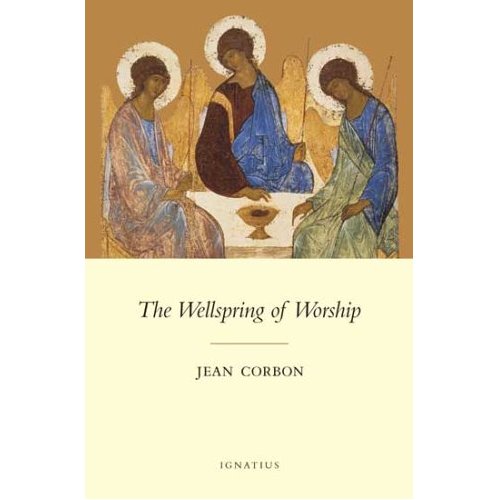 It seems at first an unlikely connection but it is made directly in a book called the Wellspring of Worship, by Jean Corbon. I read it because I heard Scott Hahn recommend it recently. It was Hahn's excellent book the Lamb's Supper which first made clear to me how the Book of Revelation relates the heavenly and earthly liturgy to each other and first opened the door to a sense of the cosmic dimension of the liturgy upon which so much of the Way of Beauty program rests. Corbon was a Dominican in Beirut who was an Eastern (Melkite I think) Catholic. He is also the person who wrote the section on prayer in the Catechism.
It seems at first an unlikely connection but it is made directly in a book called the Wellspring of Worship, by Jean Corbon. I read it because I heard Scott Hahn recommend it recently. It was Hahn's excellent book the Lamb's Supper which first made clear to me how the Book of Revelation relates the heavenly and earthly liturgy to each other and first opened the door to a sense of the cosmic dimension of the liturgy upon which so much of the Way of Beauty program rests. Corbon was a Dominican in Beirut who was an Eastern (Melkite I think) Catholic. He is also the person who wrote the section on prayer in the Catechism.
 Corbon wrote the following: 'Work and culture are the place where men and the world meet in the glory of God. This encounter fails or is obscured to the degree that men "lack God's glory" (Rom 3:23)... If the experience is to be filled with glory, men must first become once again the dwelling places of this glory and be clothed in it; that is why, existentially, everything begins with the liturgy of the heart and the divinisation of the human person.' Elsewhere he states that an absense of communion through Eucharistic liturgy 'that is at the root of injustices in the workplace, with its alienating structures and disorders in the economy.' (pp 225, 229)
Corbon wrote the following: 'Work and culture are the place where men and the world meet in the glory of God. This encounter fails or is obscured to the degree that men "lack God's glory" (Rom 3:23)... If the experience is to be filled with glory, men must first become once again the dwelling places of this glory and be clothed in it; that is why, existentially, everything begins with the liturgy of the heart and the divinisation of the human person.' Elsewhere he states that an absense of communion through Eucharistic liturgy 'that is at the root of injustices in the workplace, with its alienating structures and disorders in the economy.' (pp 225, 229)
Is the answer to economic problems and injustice in the workplace really the liturgy? This might seem a stretch. However, when one thinks of the nature of economics and the human person (anthropology) the connection seems less obscure. I first heard of the connection between anthropology and economics made when I attended a great series of economics lectures last summer run by the Acton Institute called Acton University in Grand Rapids, Michigan (there is still time to sign up for this year's if you're interested).
In the excellent introductory lectures the speakers described how economics is a reflection of network of social interractions. And the nature of these interractions derives from our understanding of the human person, which in turn comes from Catholic social teaching.
In our use of the terms here, a human person is distinct from an 'individual' (although in common language the two are often used interchangebly). A human person is always in relation with others, starting from birth. No one by choice disengages from society altogether (not even a hermit) and is happy. Indeed, we know who we are by the way we relate to others. If for example you ask people to talk about themselves they will talk about the relationships they have in order to describe who they are: where they work, the community where they grew up, the nature of their immediate family and so on.
This understanding of the human person has a profound effect on how we view what society is. A relationship of the sort we are now envisioning, when properly ordered (and of course it can be disordered) is always between two subjects ie two people freely cooperating as moral agents (freedom is as important a component here as morality). This is termed covenantal and is based upon mutual self-sacrifice (love) on behalf of the other. This freedom to respond as a person is one of the essential elements of society. Society therefore is the vector sum of the relationships within it. It is not a collective of self-contained individuals and their actions.
Covenantal relationships are founded on properly ordered love. When they occur God is present because God is Love. This Love always bears fruit and is creative: in a family for example the fruit of marriage is children. In his encyclical Deus Caritas Est, Pope Benedict used the term 'superabundant' to describe this creativity because it means something created out of nothing. Even in what we might view as less important relationships the same principles apply. In business, for example, a transacation properly ordered for the good of the other is creative too. It creates wealth. Although we don't normally associated love with business transactions, the Pope describes how this mutual interest in the other, which is what love is, is the source of the creative component in business.
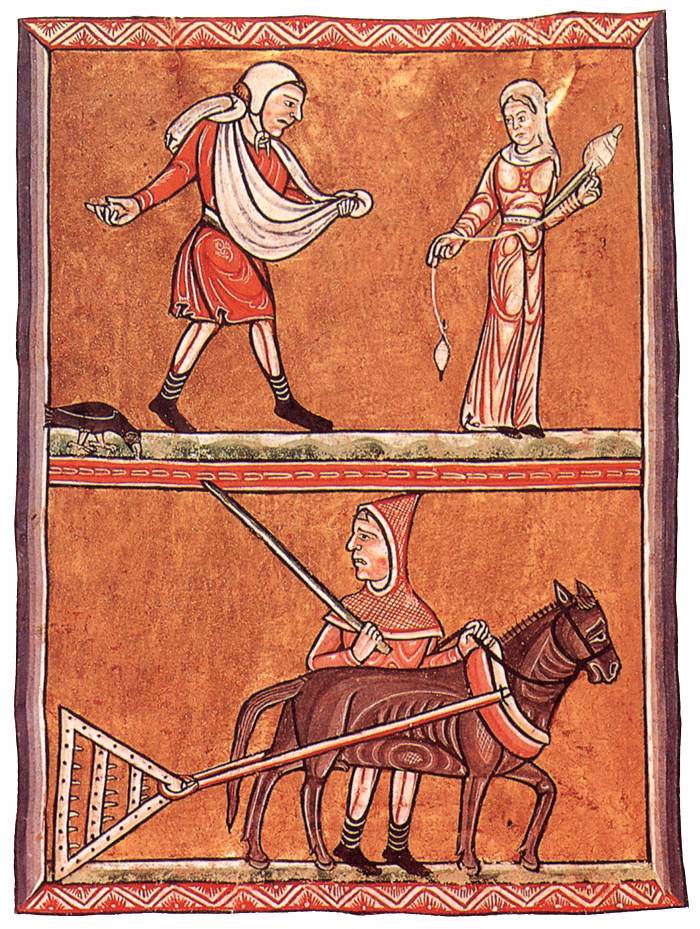 Contractual relationships, in contrast to covenantal relationships, are founded on the alignment of self-interest. this is not to say they are worthless. In this fallen world, only a fool would attempt to run a business without contracts: but in practice the actual transactions will usually involve a mixture of the contractual and the covenantal activity. Even if bolstered by signed contracts, very few have absolutely no interest in the good of the other when doing business with them, even if it is only to try to consider how to make a product more valuable to a customer by suiting his needs better. Also, there must be a basic trust and mutual respect otherwise, for all the legal protection in the world, no business would be done. What the Pope tells us is that it is the covenantal aspect that is the wealth creating superabundant part. Presumably, therefore, if one wishes to maximise the creation of wealth this is the aspect upon which we should focus. I have written about this more here.
Contractual relationships, in contrast to covenantal relationships, are founded on the alignment of self-interest. this is not to say they are worthless. In this fallen world, only a fool would attempt to run a business without contracts: but in practice the actual transactions will usually involve a mixture of the contractual and the covenantal activity. Even if bolstered by signed contracts, very few have absolutely no interest in the good of the other when doing business with them, even if it is only to try to consider how to make a product more valuable to a customer by suiting his needs better. Also, there must be a basic trust and mutual respect otherwise, for all the legal protection in the world, no business would be done. What the Pope tells us is that it is the covenantal aspect that is the wealth creating superabundant part. Presumably, therefore, if one wishes to maximise the creation of wealth this is the aspect upon which we should focus. I have written about this more here.
As with all things that exist in human nature, the essence of personhood exists in perfection in God in whose image and likeness we are made. However, there is only one God and unlike us He is complete unto Himself and does not rely on any external relationships in order to exist. Revelation helps us here: through it we know that there is one God and three persons in the Trinity, in perfectly realized relationship. As with the human person each person of the Trinity is by nature relational.
A Christian concept of the human person and his relationship with God, it seems to me (this liturgical aspect of the anthropology I am about to describe was not discussed at Acton) explains Courbon's quote which connects liturgy and economics: our joy as human beings rests in the nature of our participation in the liturgy. We are liturgical beings, first and foremost - we are made for the liturgy. Through the liturgy we enter into a truly personal relationship with God: we approach the Father, through the Son, in the Spirit. Put another way, when we participate in the liturgy we enter the mystery of the Trinity through the Church, the mystical body of Christ. When we do so, by grace, we can relate first, personally, to the Son as man; and second to the Father through the Son as God. The Son is one person, but two natures.
 The point that Courbon makes very strongly in his book is the fact that through our participation in the liturgy and this personal relationship with Christ as man, we are divinized. To quote St Athanasius of Alexandria in the 3rd century: 'God became man that man might become gods.' We are not fully partaking of the divine nature in this life, but by degrees and to the extent that we actively participate in the liturgy, we are partially divinized in this life. Our ordered participation in any human relationships rests on the foundation of our relationship with God; and our relationship with God rests on our and the Church's participation in the liturgy. It is a lack in our participation that causes difficulties in our personal lives and our participatio in society. Any problem of modern society that we care to mention is at root a problem relating to our personal relationships, for personal relationships are the building block of society. Similarly all that is good in day to day mundane living can be so because of personal relationships ordered liturgically. Therefore, it is to the degree that we are divine, shining with that same light that was seen at the Transifiguration, that we can act as agents for a good society, a good culture, a good economy. Accordingly, this all depends upon our ordered and active participation in the liturgy.
The point that Courbon makes very strongly in his book is the fact that through our participation in the liturgy and this personal relationship with Christ as man, we are divinized. To quote St Athanasius of Alexandria in the 3rd century: 'God became man that man might become gods.' We are not fully partaking of the divine nature in this life, but by degrees and to the extent that we actively participate in the liturgy, we are partially divinized in this life. Our ordered participation in any human relationships rests on the foundation of our relationship with God; and our relationship with God rests on our and the Church's participation in the liturgy. It is a lack in our participation that causes difficulties in our personal lives and our participatio in society. Any problem of modern society that we care to mention is at root a problem relating to our personal relationships, for personal relationships are the building block of society. Similarly all that is good in day to day mundane living can be so because of personal relationships ordered liturgically. Therefore, it is to the degree that we are divine, shining with that same light that was seen at the Transifiguration, that we can act as agents for a good society, a good culture, a good economy. Accordingly, this all depends upon our ordered and active participation in the liturgy.
As Pope Benedict points out in his book, The Spirit of the Liturgy, the schism between the culture of faith and the broader culture occurred in the 19th century. All of the preceeding discussion points to the conclusion that this occured due to problems with the liturgy at this time that remain with us to this day. The Fathers of the Second Vatican Council addressed this directly and the Reform of the Reform movement, which looks directly to Pope Benedict as its figurehead is aimed at a proper implementation of what this council called for in Sacrosanctum Concilium. In his analysis of the problems in the liturgy of the Church that caused this schism, presented in paper at a conference in 2002 which was attended by the then Cardinal Ratzinger, Stratford Caldecott points to a misunderstanding of the anthropology due to the influence of the Enlightenment. He describes how the traditional and scriptural view of man as body, soul and spirit had been usurped by a dualistic picture of man as body and soul only. I have written about this here.
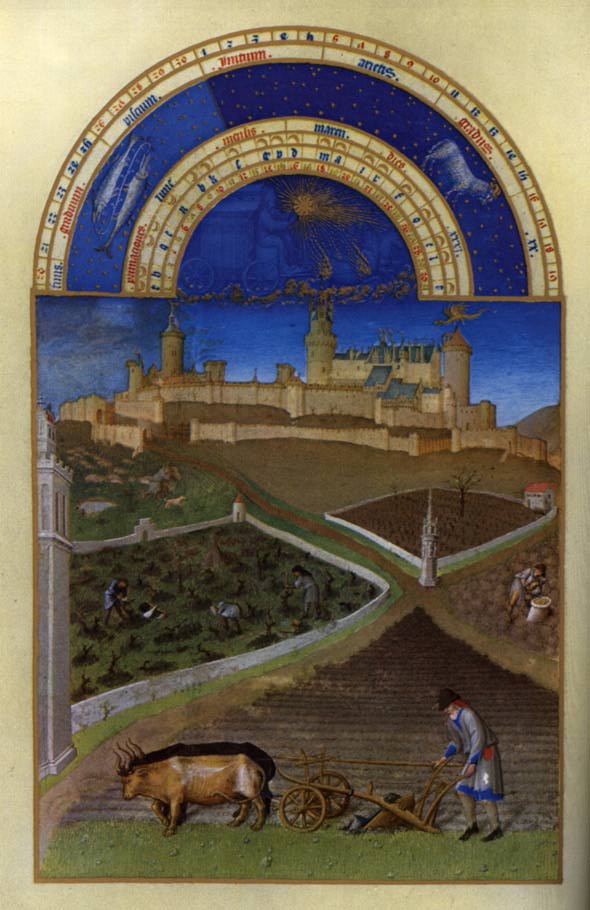 Where does this leave us in regard to the economy? There are many today who point to problems, especially cultural problems in modern society which they feel have economic causes. So the sense of alienation of the person from society through variously too much work, the lack of it, or the wrong sort; the lack of genuine community in work that supports the family, and a culture bereft of grace and beauty with art that doesn't look like art at all, music that doesn't sound like music, ugly mass-produced goods and ugly houses, factories, civic buildings and churches. Many who have this view blame in varying degrees causes such as capitalism, the unfettered free market, mass production, industrialisation to name four.
Where does this leave us in regard to the economy? There are many today who point to problems, especially cultural problems in modern society which they feel have economic causes. So the sense of alienation of the person from society through variously too much work, the lack of it, or the wrong sort; the lack of genuine community in work that supports the family, and a culture bereft of grace and beauty with art that doesn't look like art at all, music that doesn't sound like music, ugly mass-produced goods and ugly houses, factories, civic buildings and churches. Many who have this view blame in varying degrees causes such as capitalism, the unfettered free market, mass production, industrialisation to name four.
I share this concern about the culture and the nature of work today, not as an economist about which I know very little, but just as someone who is part of society and works. But like Corbon I feel that the problem to be solved is liturgical and with all of these things the first question to ask is of myself: how am I participating in the liturgy? To me industrialisation and capitalism are not inherently bad, in fact quite the opposite. I think they are very good. However, because they developed in this post-Enlightenment age, the forms we now see them in lack something very important. That is a foundation of personal relations that are resplendant, at least to greater level, in the Glory of God. Only once we seek this union with God through an ordered and active participation in the liturgy can we see a change. Any proposed solutions to these problems that are simply economic in nature, in the sense that they take no account of man as a liturgical being and his participation in the liturgy, will I think end in failure. It may solve the immediate problem, but will create others elsewhere. It is like the huge bump on the head of Tom the cat in the Tom and Jerry cartoons. Jerry aims to cure it by hammering the bump flat. He succeeds, but as the first bump diminishes with each hammer blow, a second appears and grows elsewhere by equal degrees.
My belief is that if we adopt a model of economics that is rooted in a liturgical view of the anthropology, then we can transform the industry and the economy into power houses for culture of beauty. It will never be perfect, but it can be a lot better. We do not need to go back in time to a medeival pre-industrial society.
What would an economy based upon a liturgical view of the anthropology look like? I have no idea. I am not an economist. My guess is that we don't have to specify it. To the degree that the liturgical transformation of man occurs it will happen organically as each personal relationship becomes more ordered and shines with the glory of God. If there is a role for the government here it is not so much and active one where it tries to direct human economic activity, but rather passive - to protect personal freedom so that each unique person can relate to others in the way that is natural to them. Through God's grace the creativity of man is boundless. The government, an institution, is less likely to be inspired in its actions, its seems to me, than some, at least, individuals; given that there are so many individuals and just one government. Therefore, the more the government takes an active role, rather than passive, the effect is likely to be that in promoting the one course of action that it favours, it will stifle the almost limitless variety of individual actions that do not correspond to it. This reduces the chance of a solution being found in any situation from high to virtually negligible.
 To quote Corbon at greater length: "Work and culture are the place where men and the world meet in the glory of God. This encounter fails, or is obscured to the extent that men 'lack God's glory' (Rom 3:23). If the universe is to be recognised and experienced as filled with his glory (see Is 6:3), men must first become once again the dwelling places of this glory and be clothed in it; that is why, existentially, everything begins with the liturgy of the heart and the divinization of the human person. We deal in abstractions when we say that a man is a microcosm, and we delude ourselves when we hope that man can divinize his world - as long as it has not become clear that God's glory is the source of his divinization." (p225)
To quote Corbon at greater length: "Work and culture are the place where men and the world meet in the glory of God. This encounter fails, or is obscured to the extent that men 'lack God's glory' (Rom 3:23). If the universe is to be recognised and experienced as filled with his glory (see Is 6:3), men must first become once again the dwelling places of this glory and be clothed in it; that is why, existentially, everything begins with the liturgy of the heart and the divinization of the human person. We deal in abstractions when we say that a man is a microcosm, and we delude ourselves when we hope that man can divinize his world - as long as it has not become clear that God's glory is the source of his divinization." (p225)
"For this light that transfigures both work and the created thing that work shapes is the light of communion.Like the eucharistic liturgy, the Eucharist as lived out in daily life is crowned by communion. At bottom, it is the absence of this communion that is at the root of injustices in the workplace, with its alienating structures, and of disorders in the economy. The liturgy does not do away with the need for our inventiveness in dealing with these problems. However, it does something even better: since it is not a structure but the Breath of Spirit, it is prophetic; it discerns, it challenges; it spurs creativity and is translated into actions. It cries out for justice and is the agent of peace." (p229)
Unfortunately, I am unable to make Acton University this summer as I am returning to England for the month. I will be sorry to miss it. I would recommend anyone interested in these issues of the economy, the human person and Catholic social teaching; and meeting many like minded people, to attend.
However, any who can make it to New Hampshire over the summer and are interested by these issues might consider coming along to our weekend retreats which are a combination of lectures about the cosmic liturgy and practice in accordance with the ideas above. See here for more details about the Way of Beauty Summer Retreats.
The pictures are from various medieval manuscripts and psalters. The painting below is The Fight between Festival and Lent by Breugel










